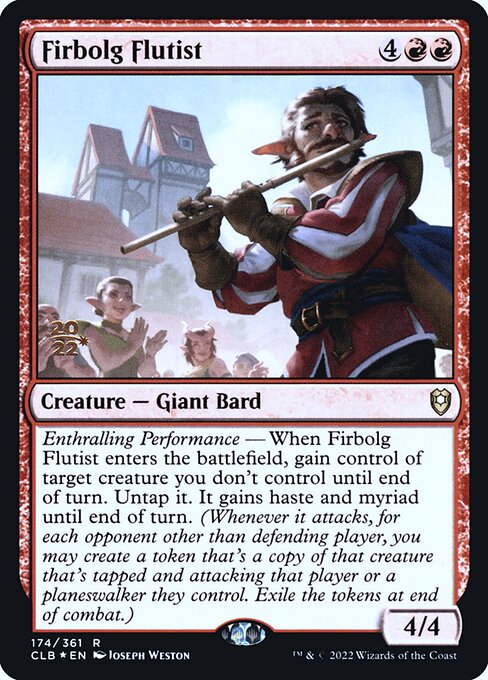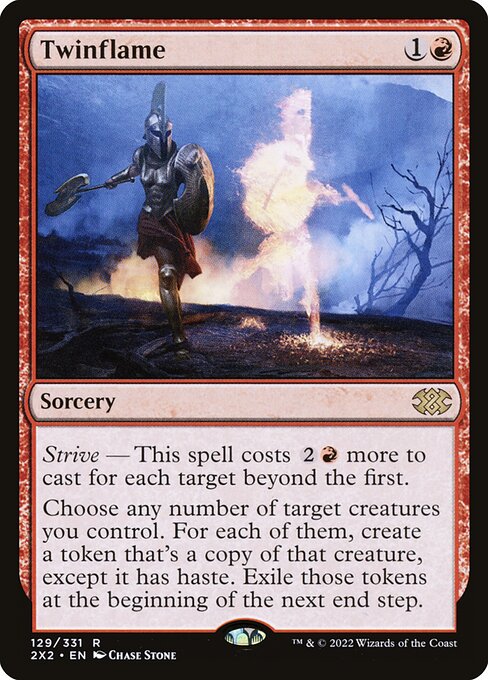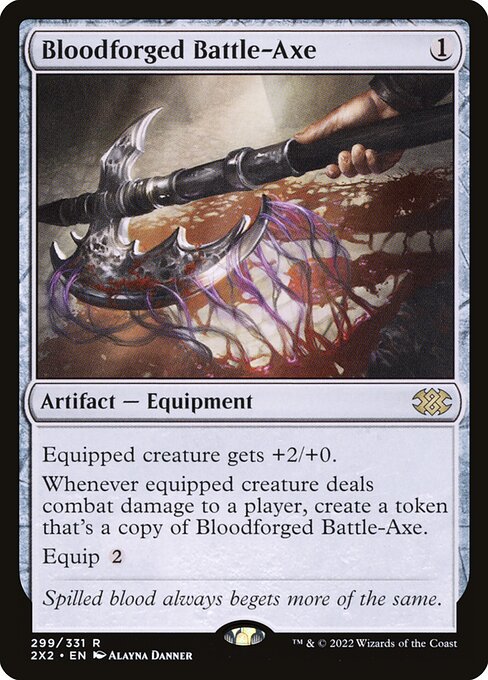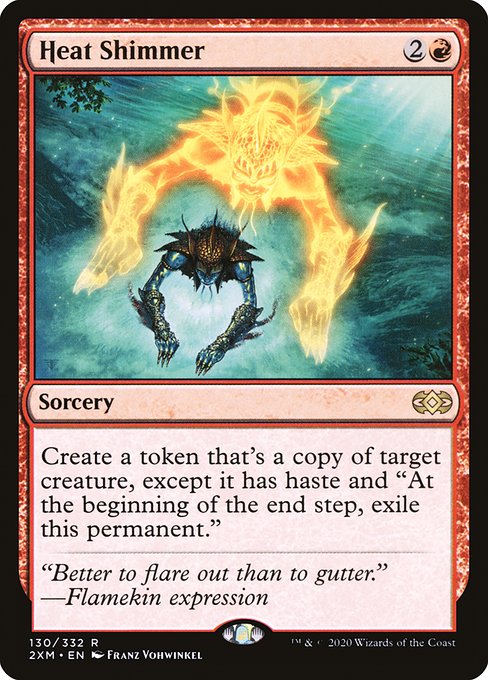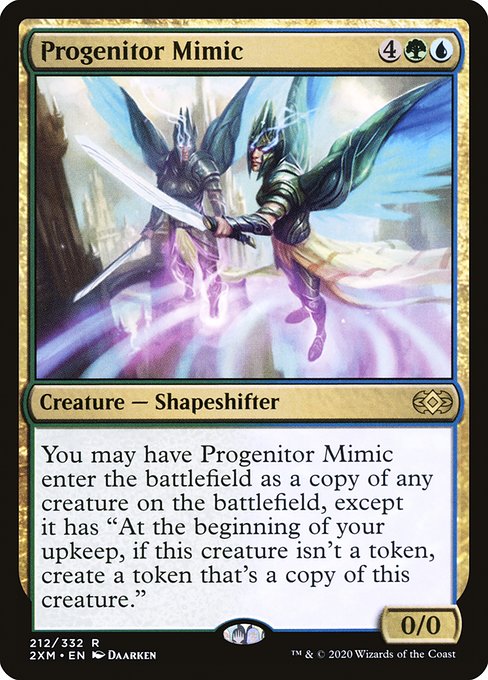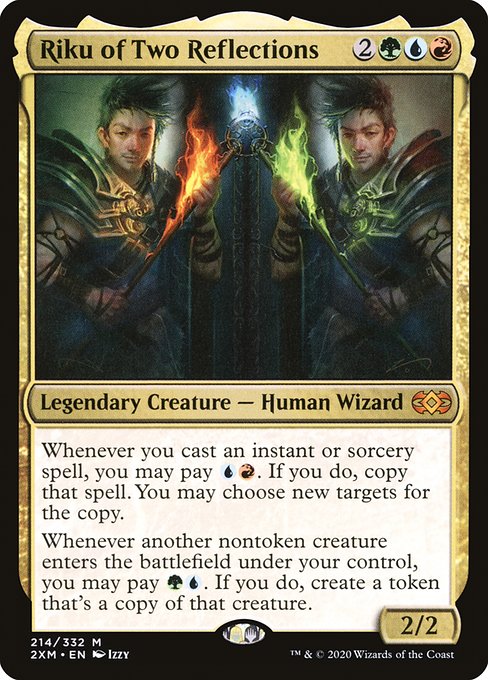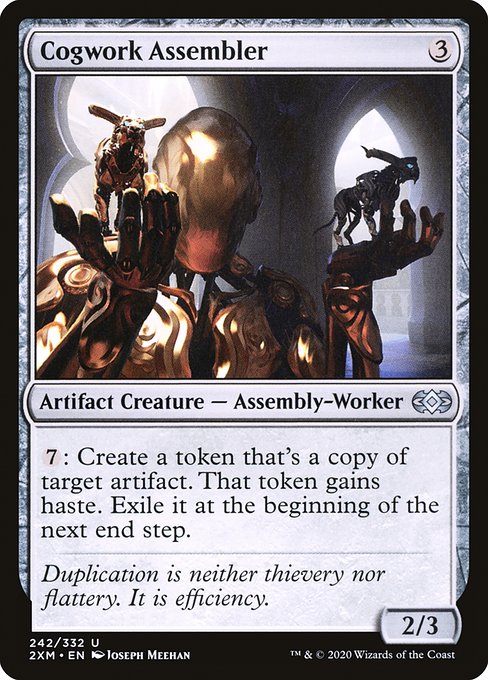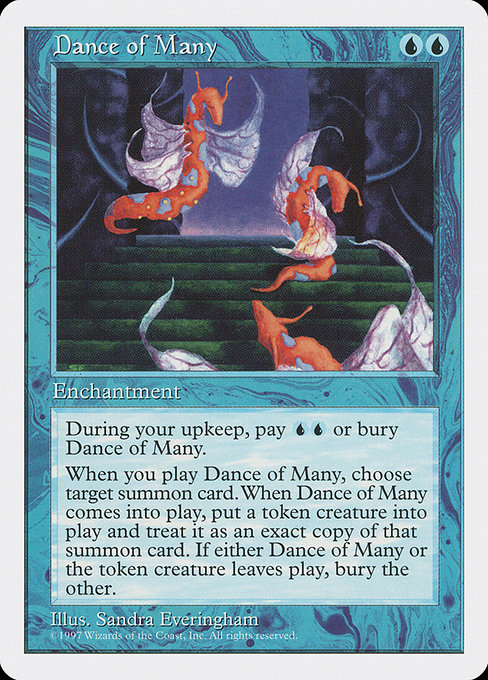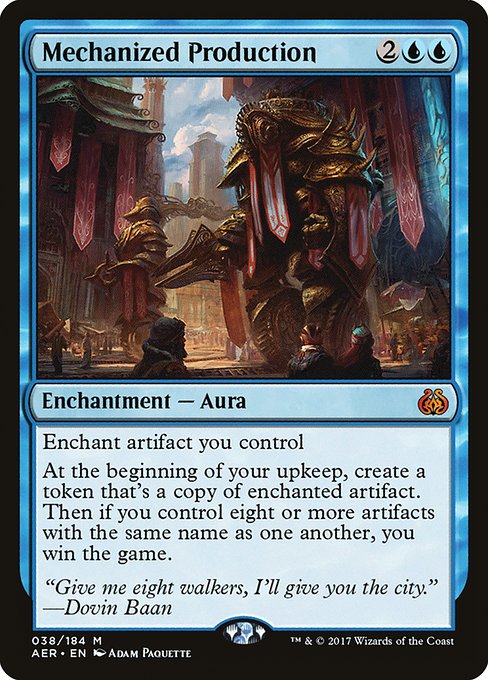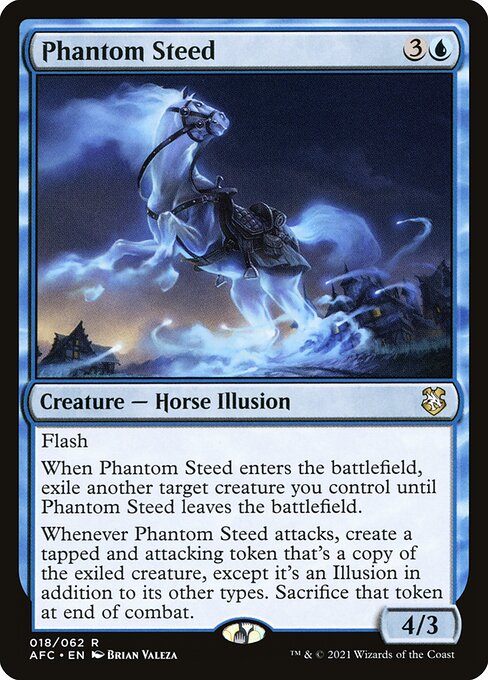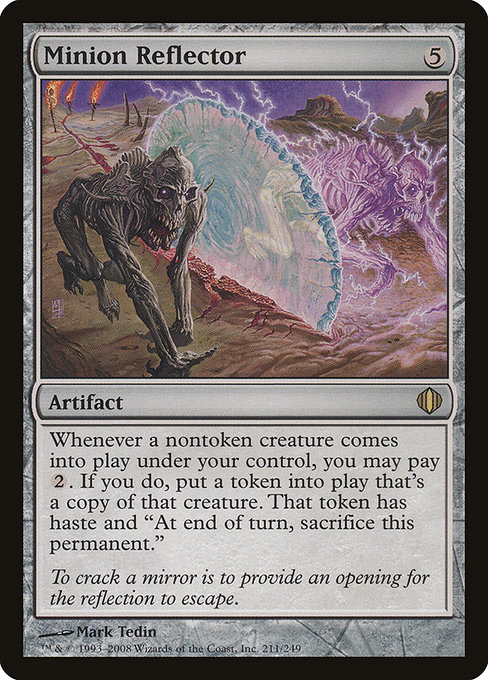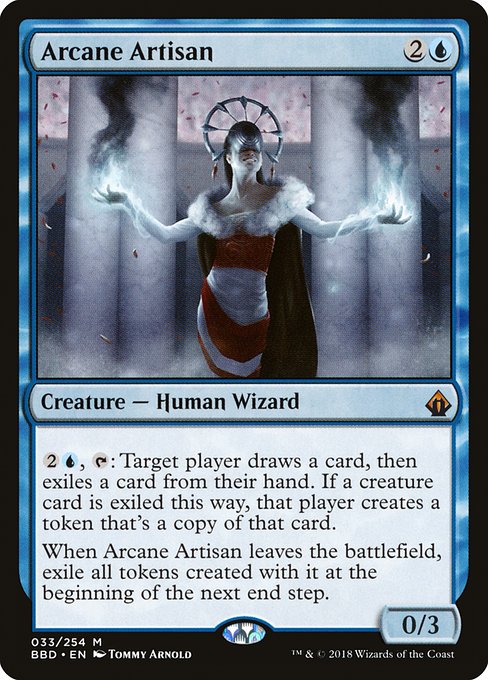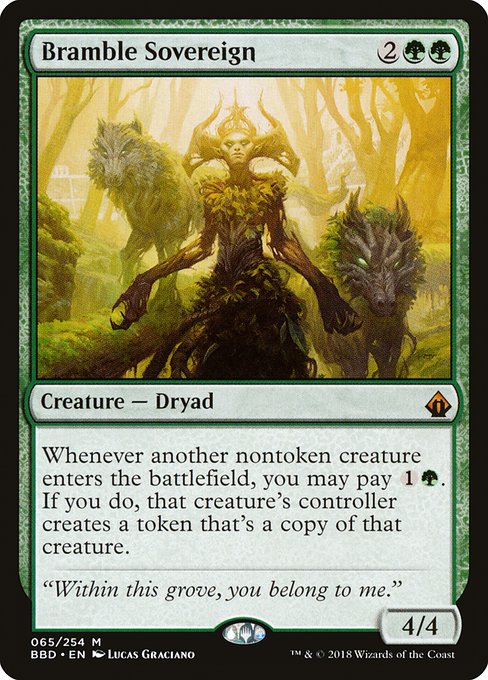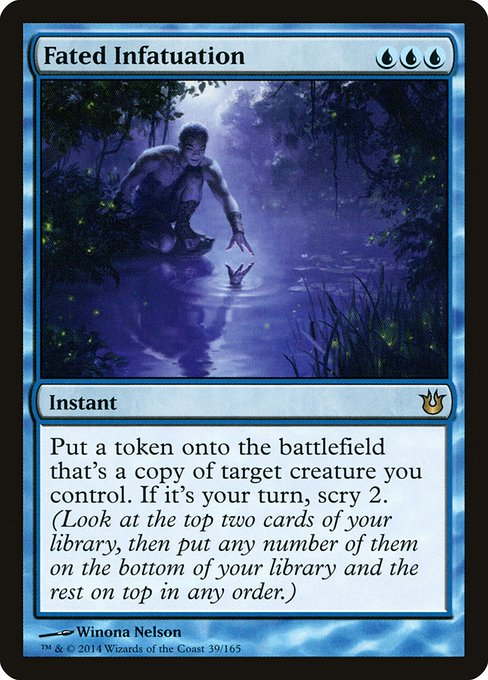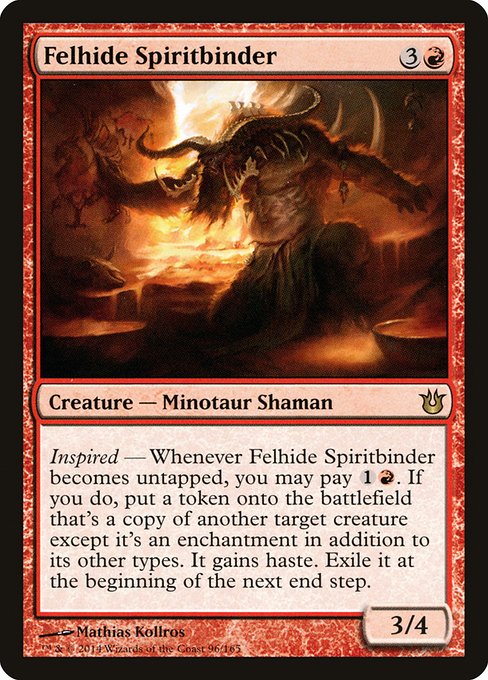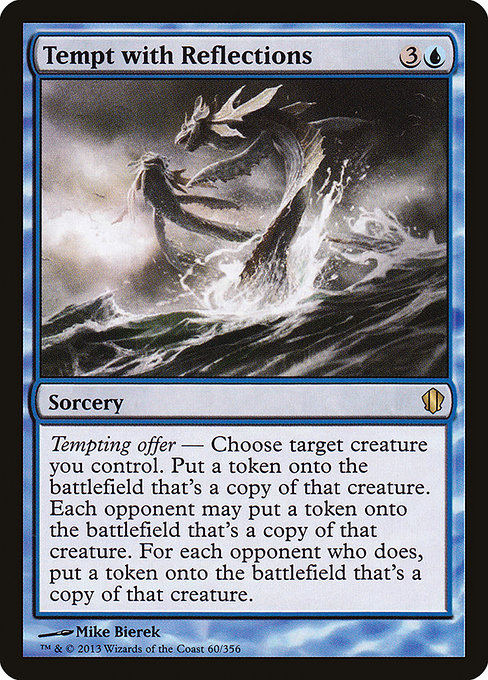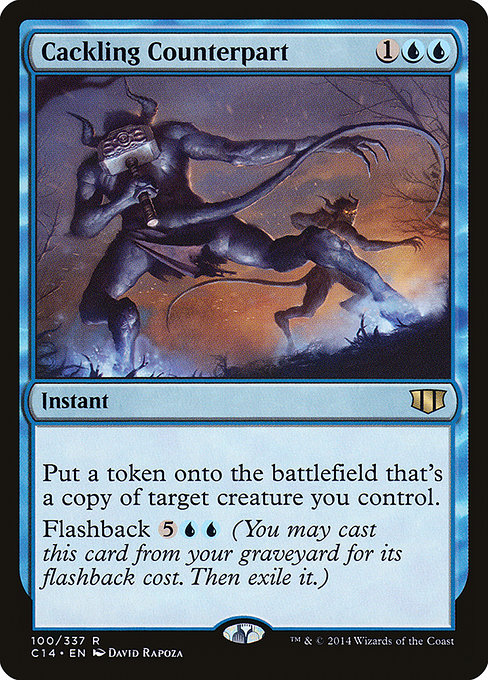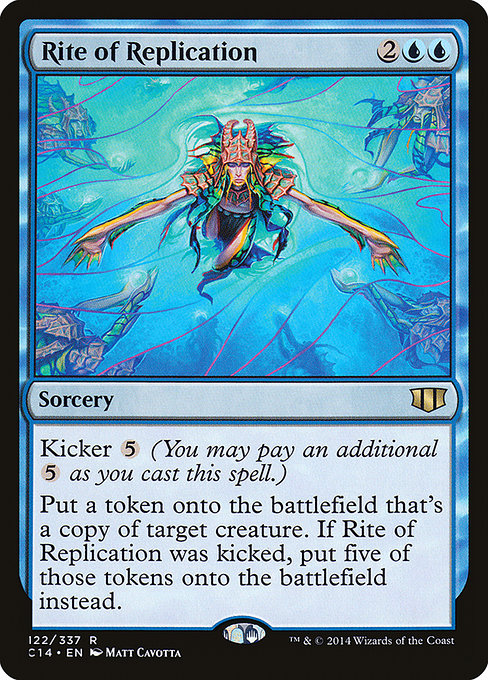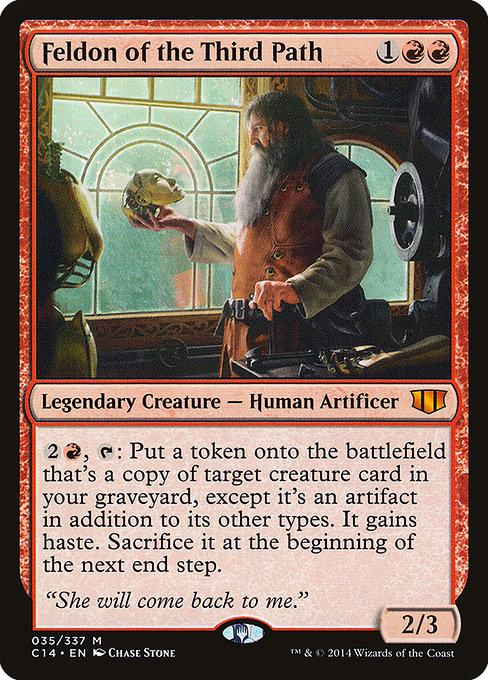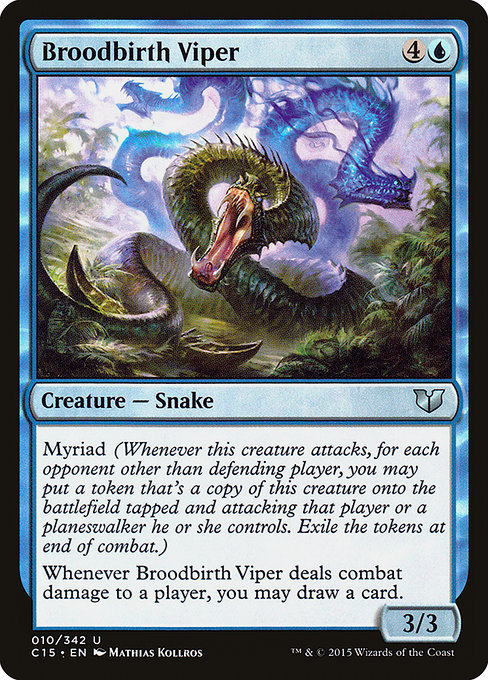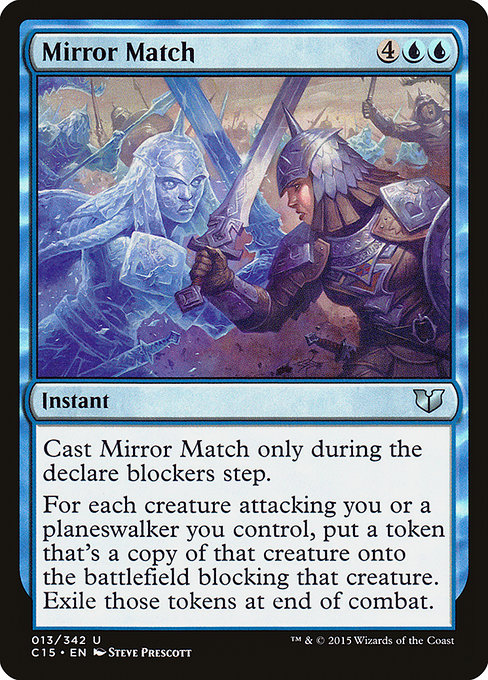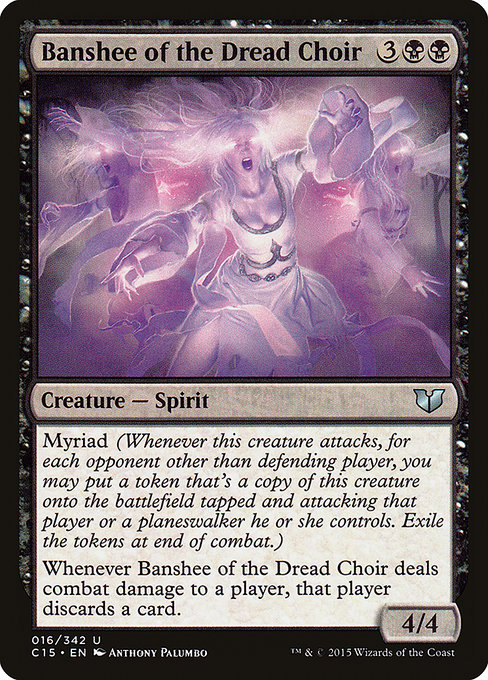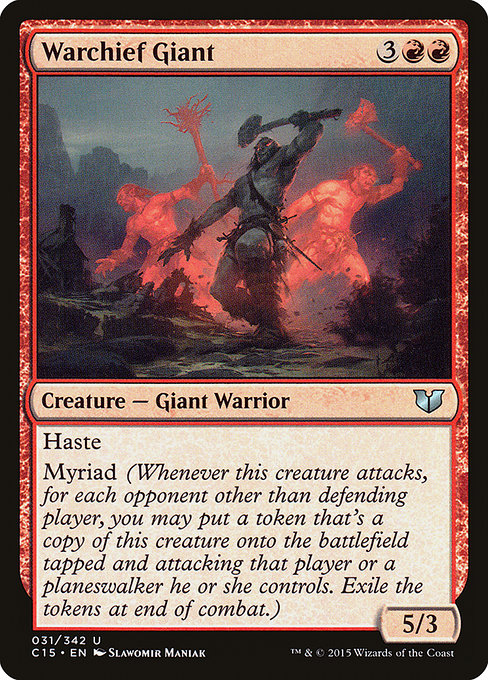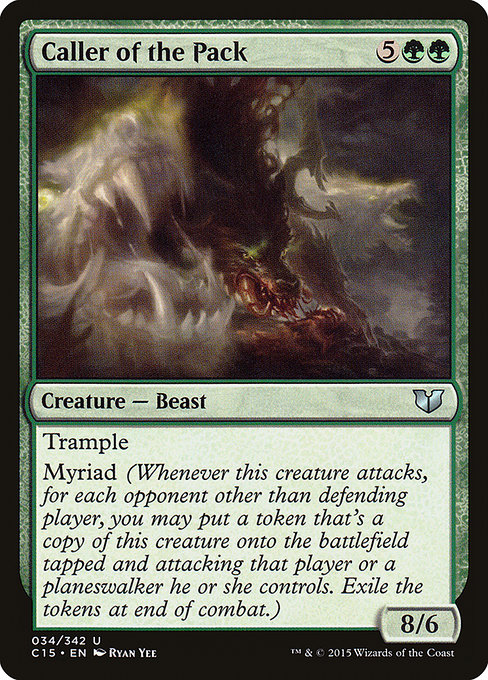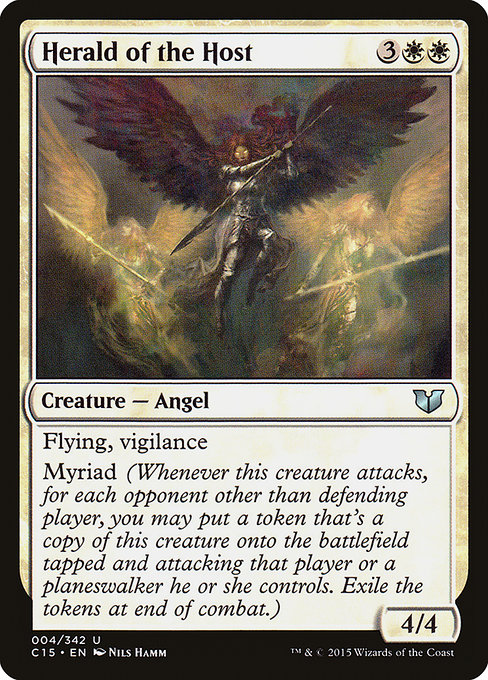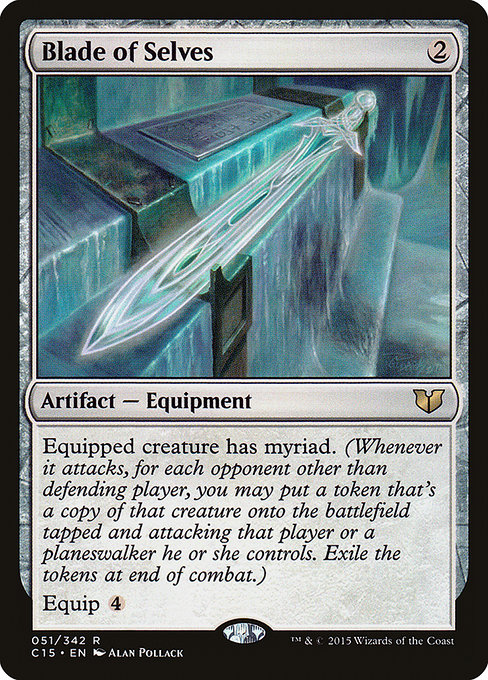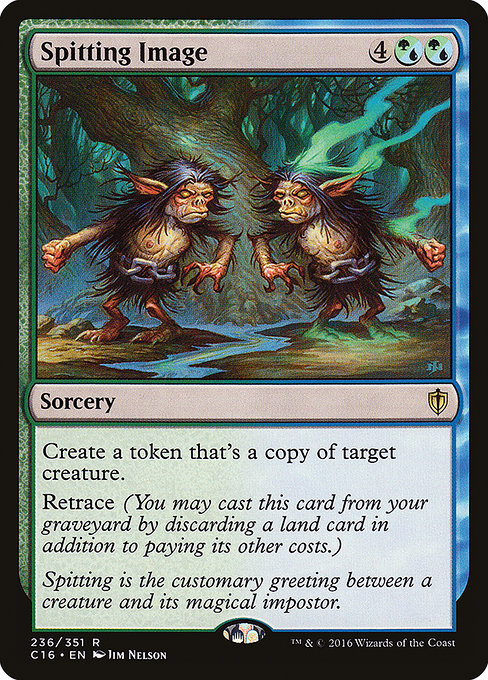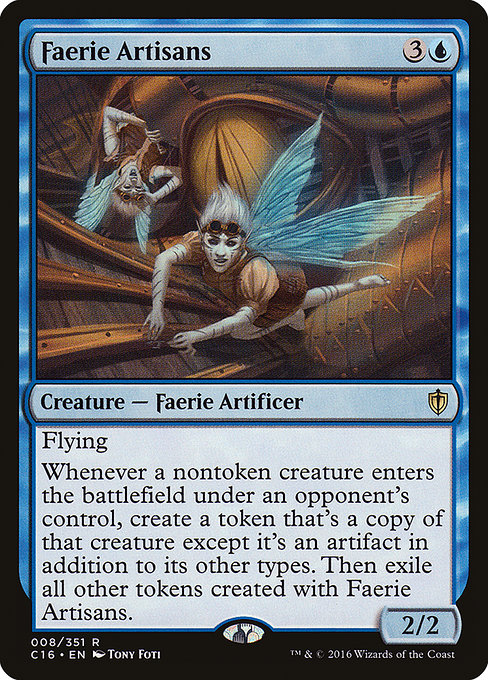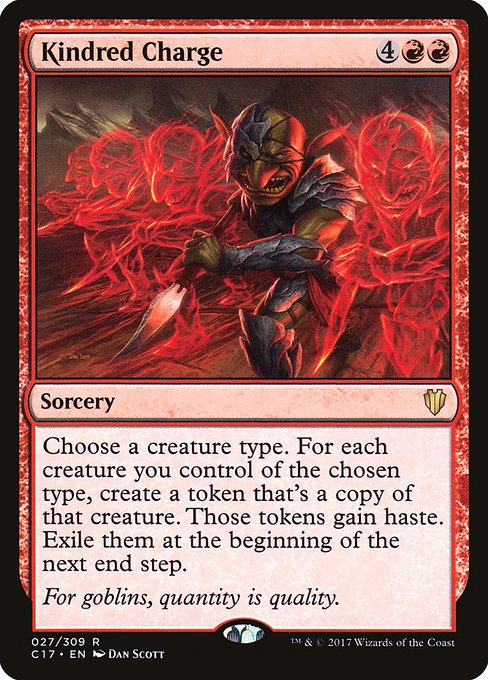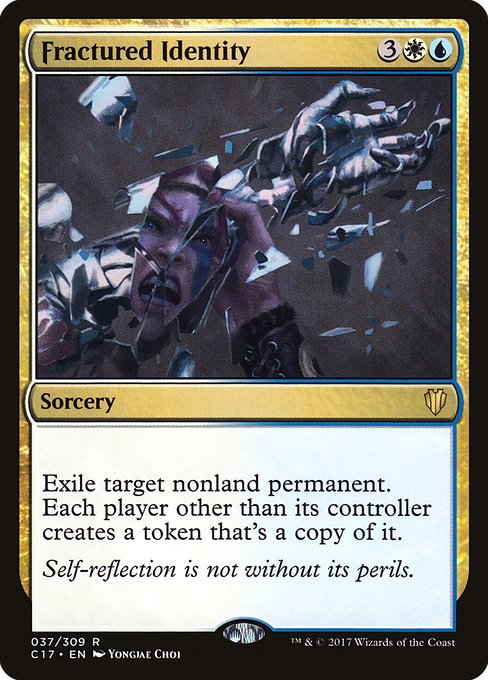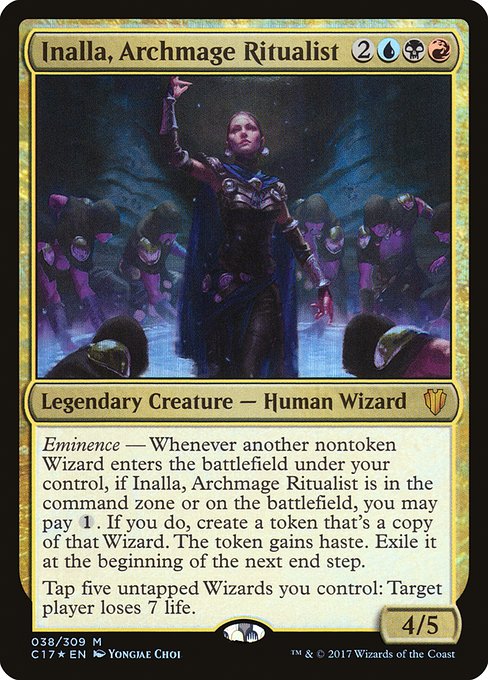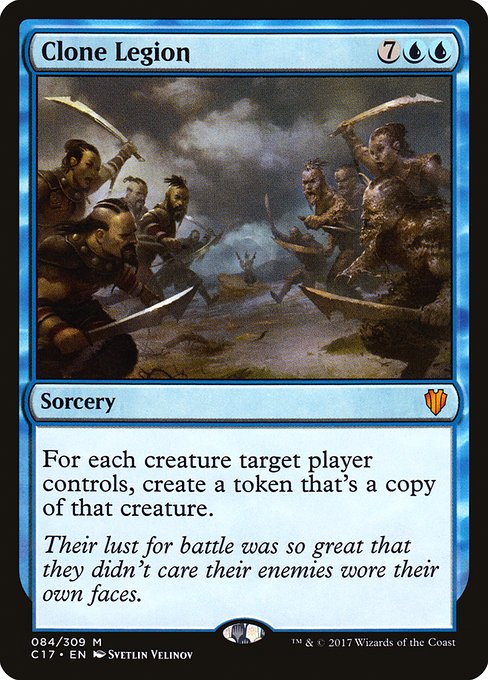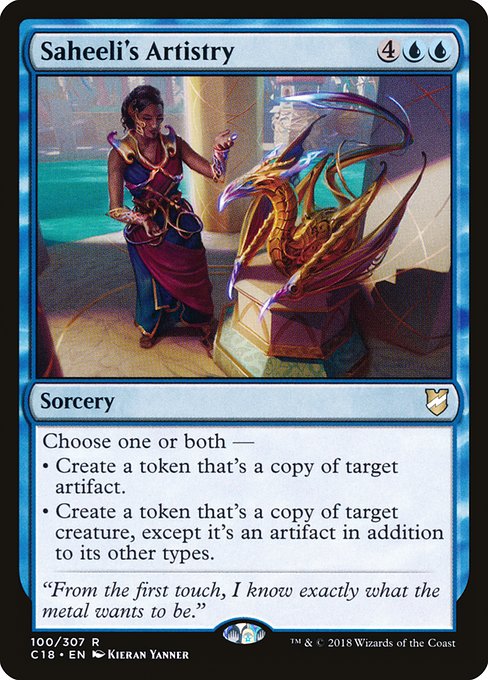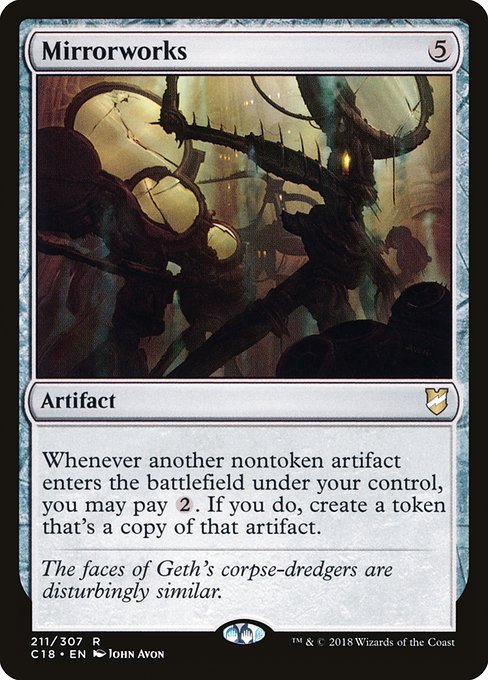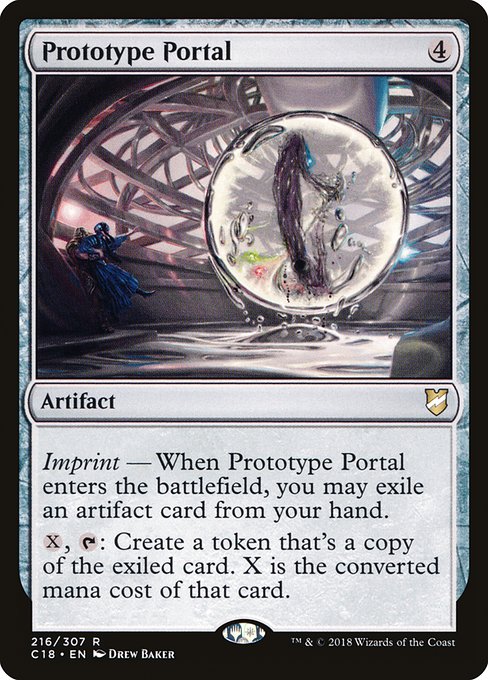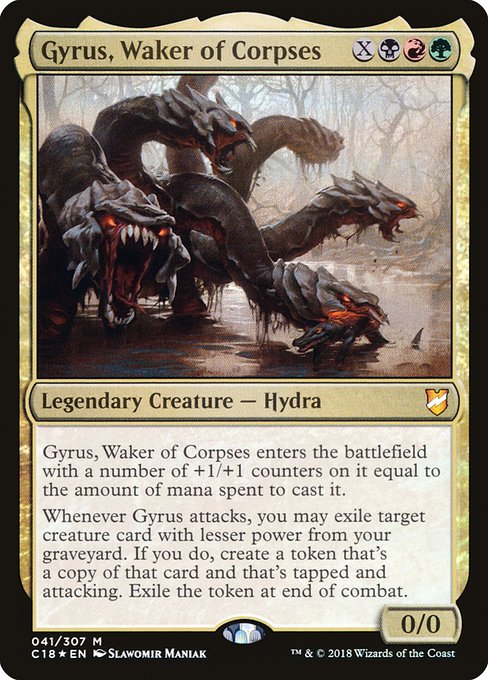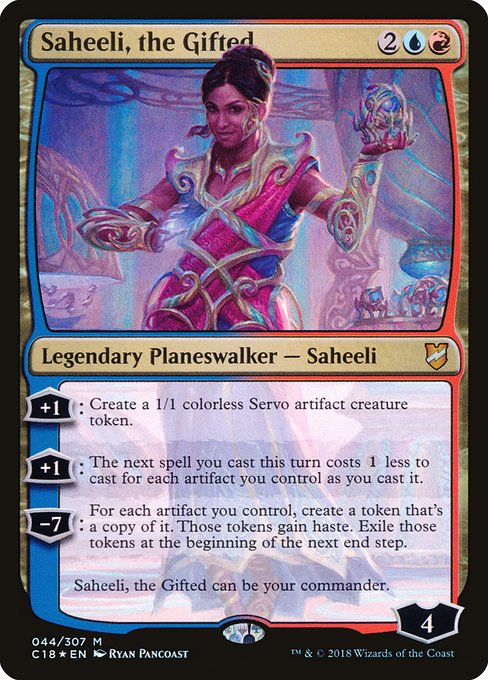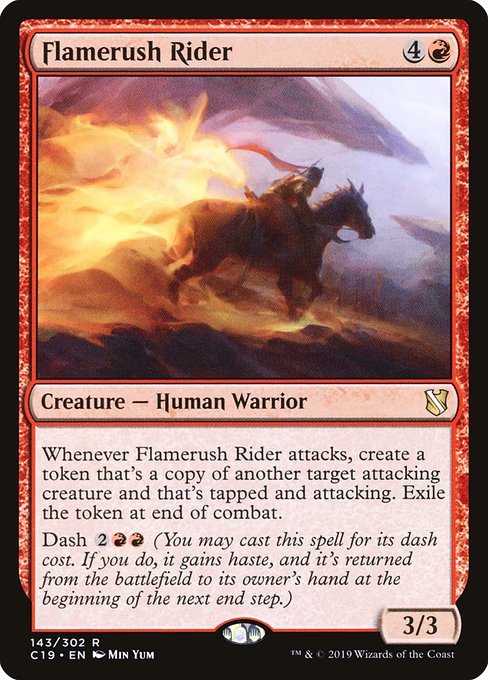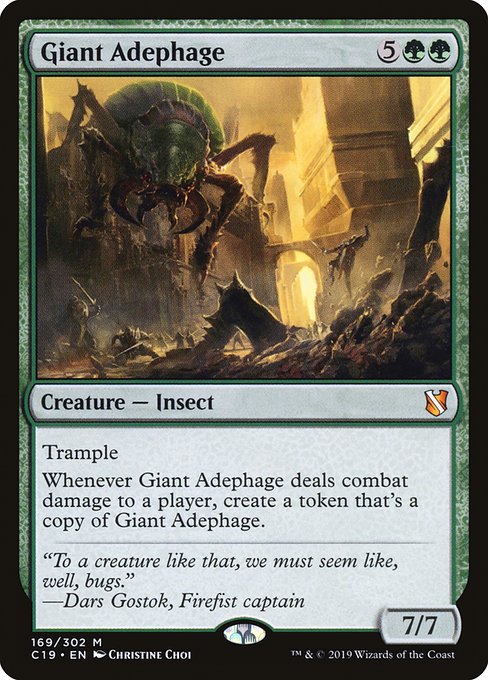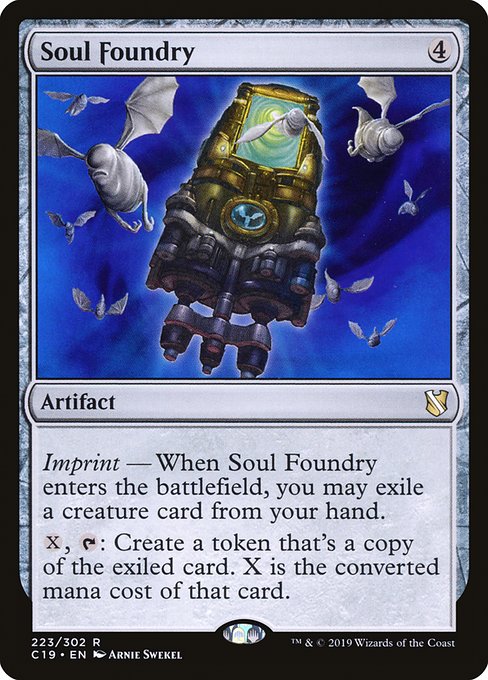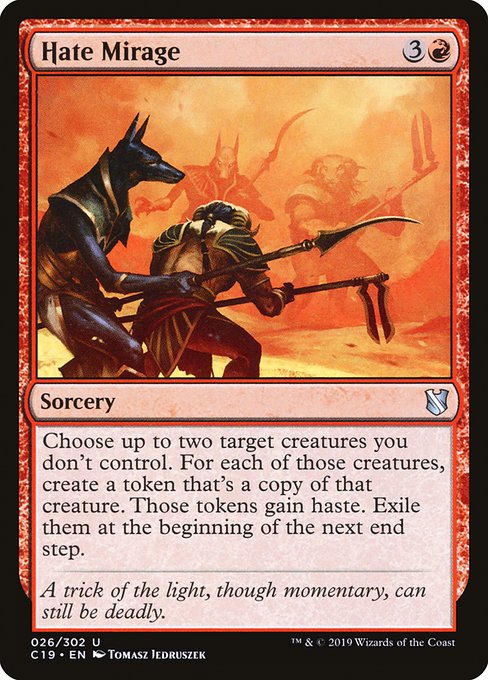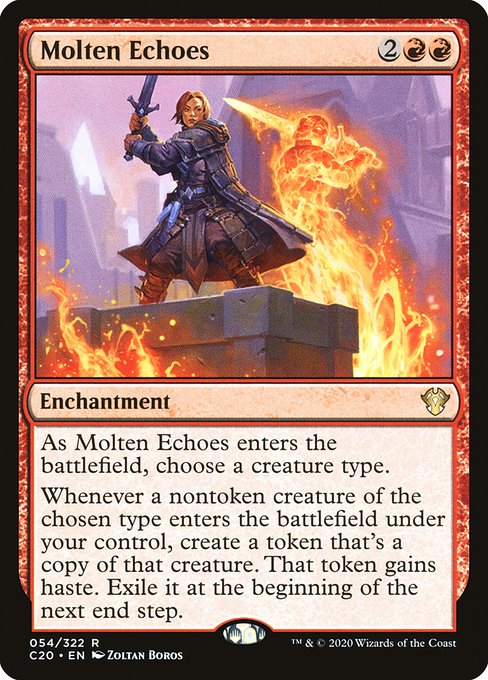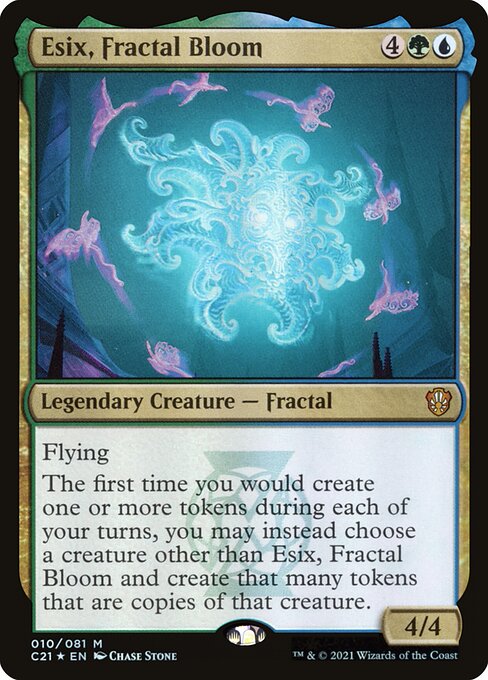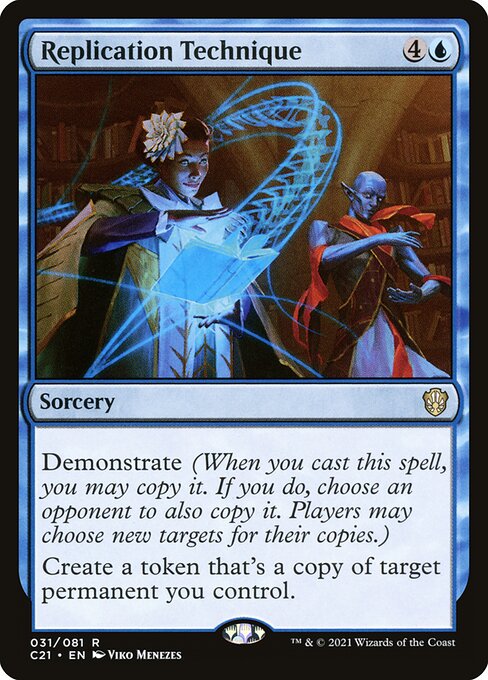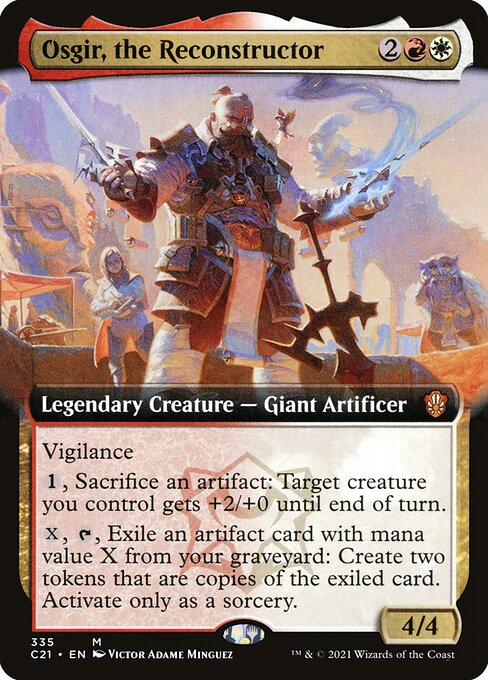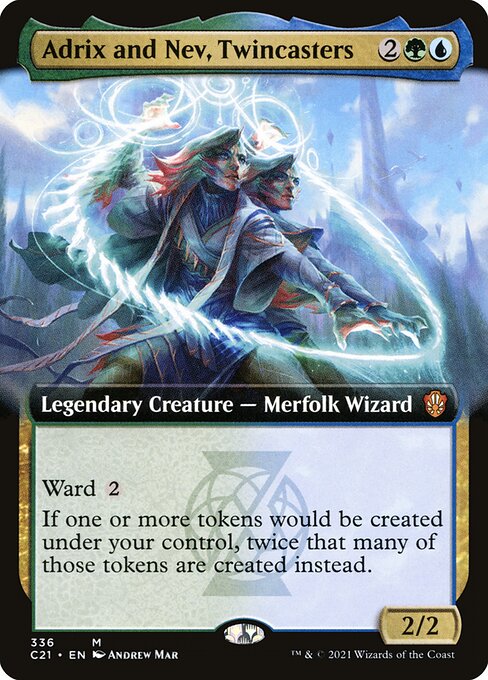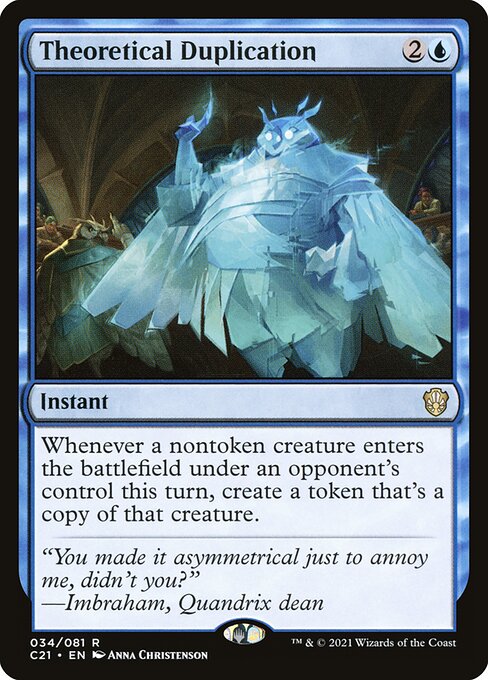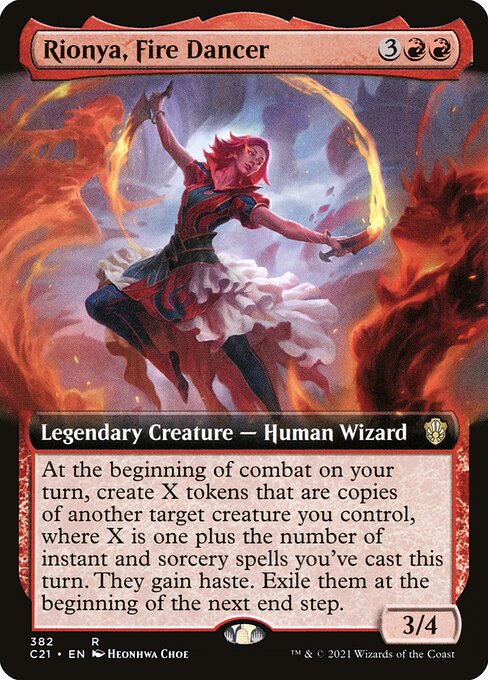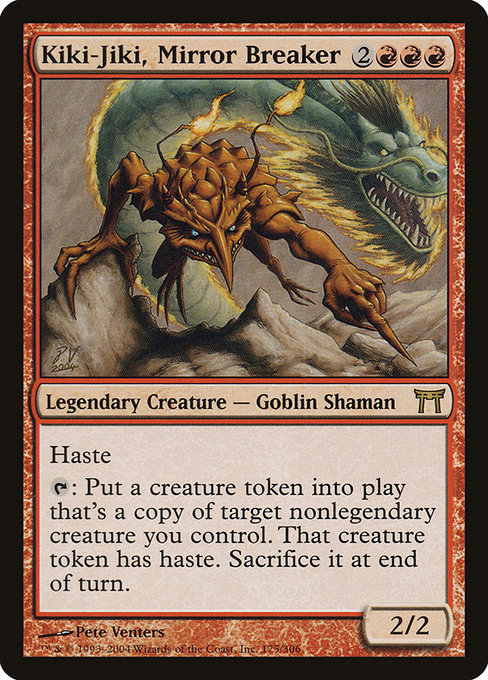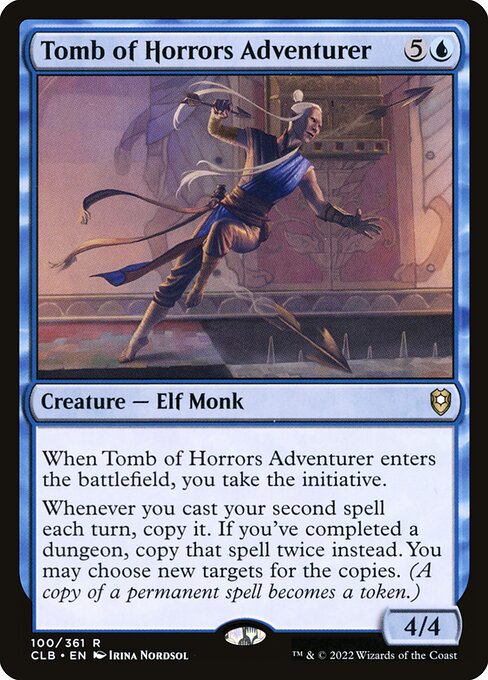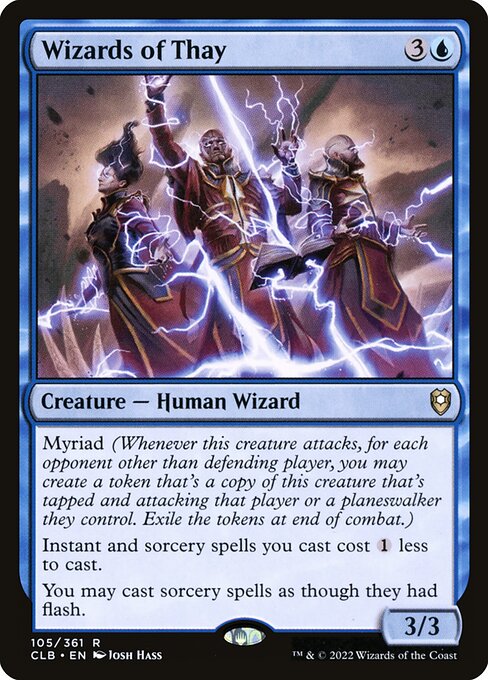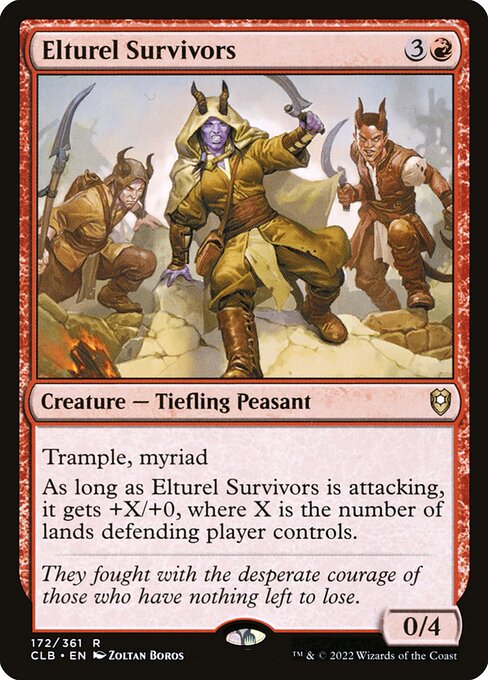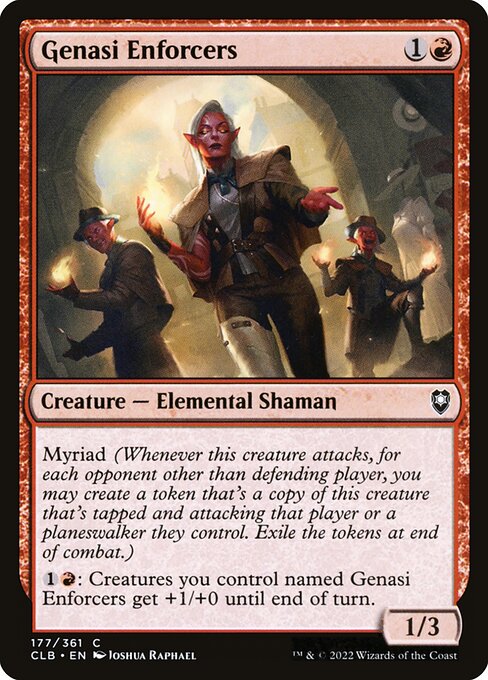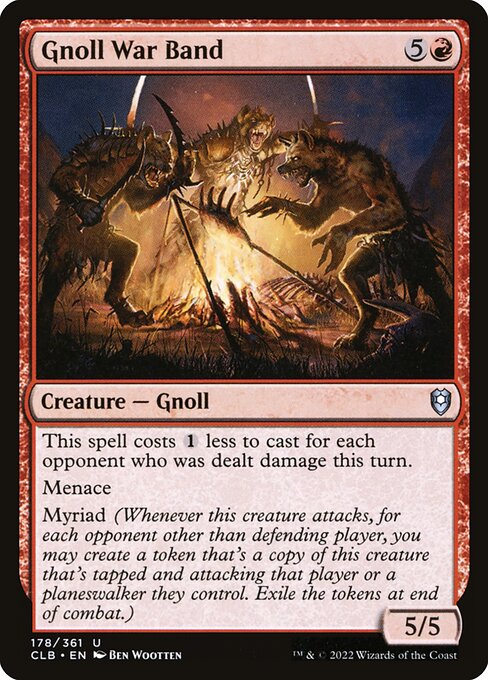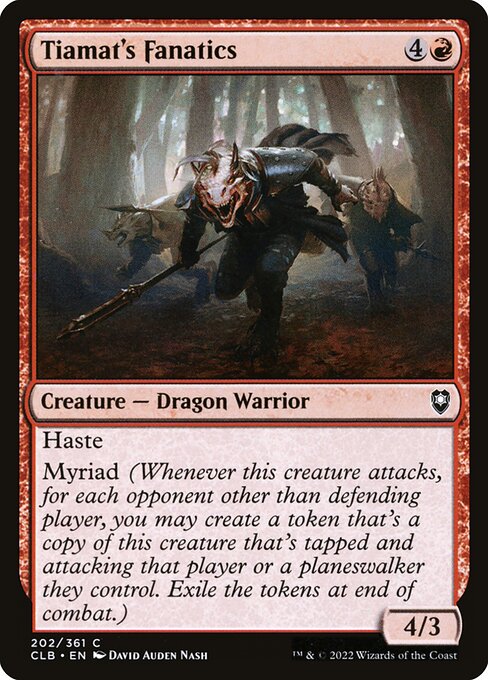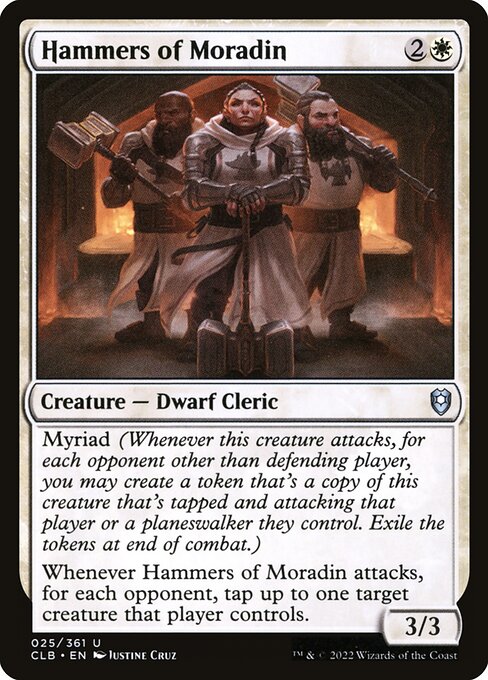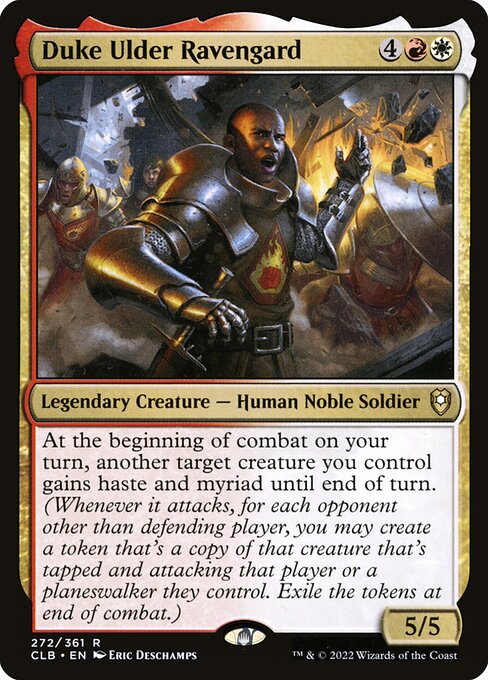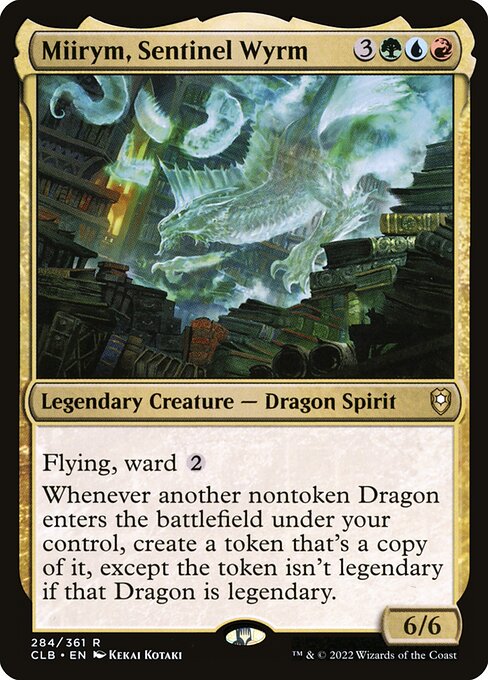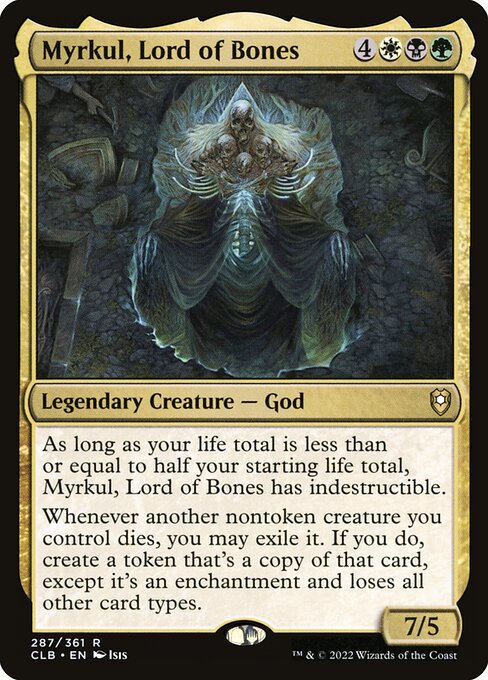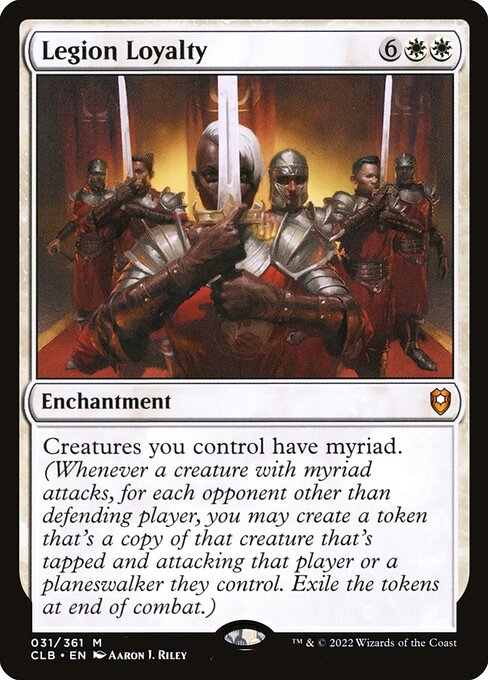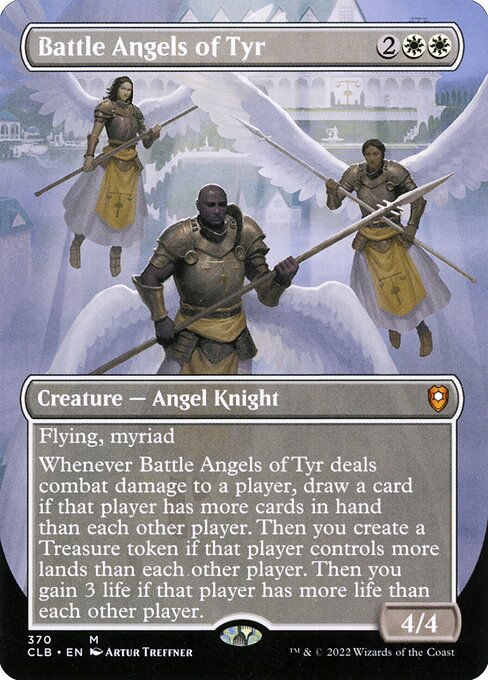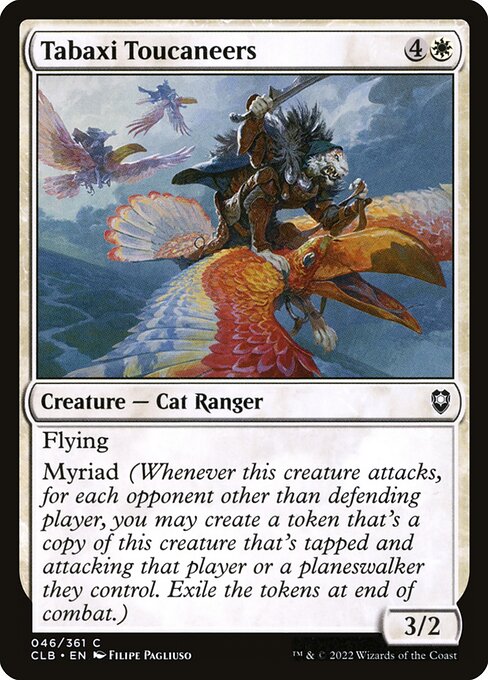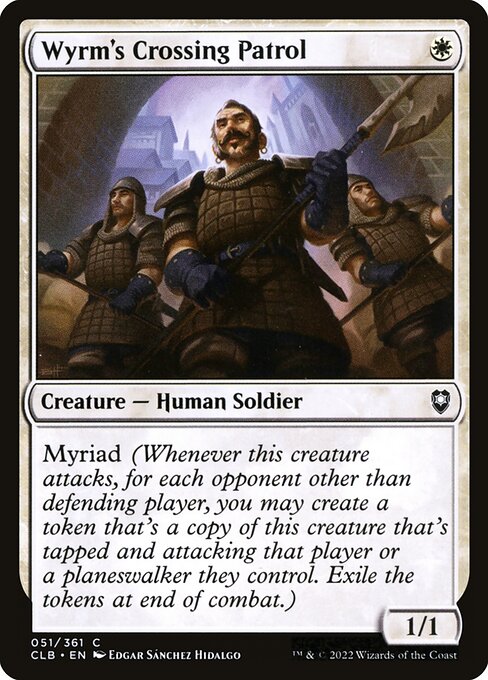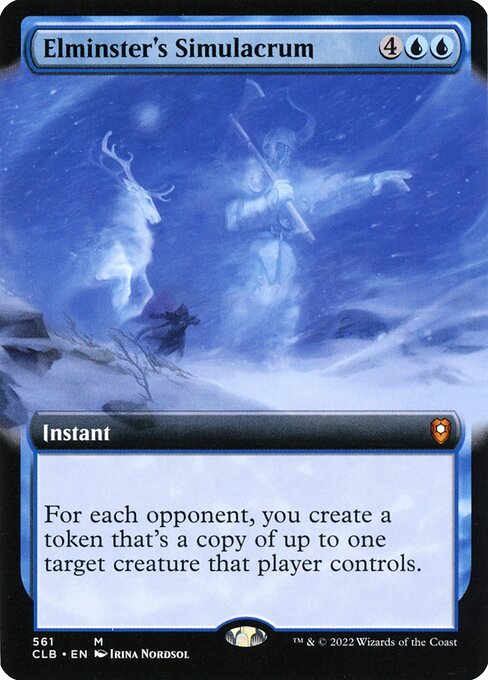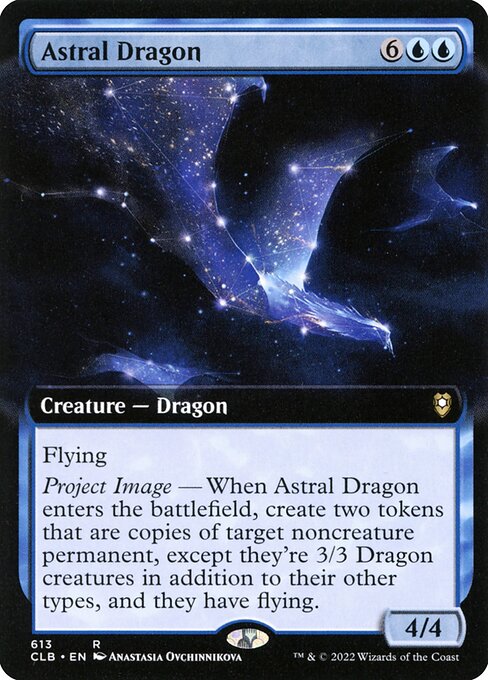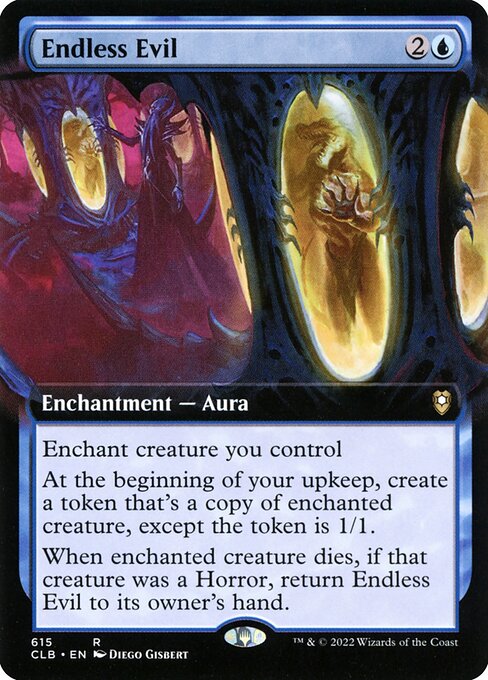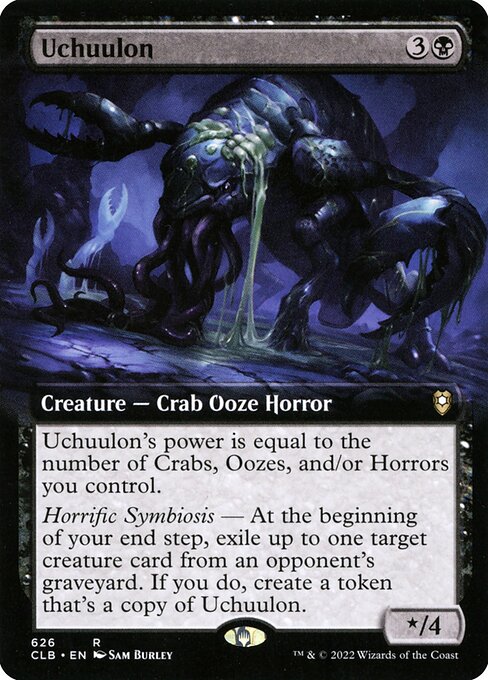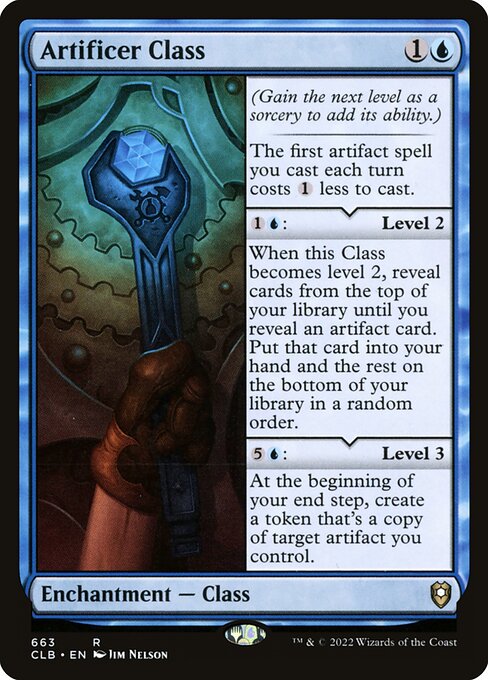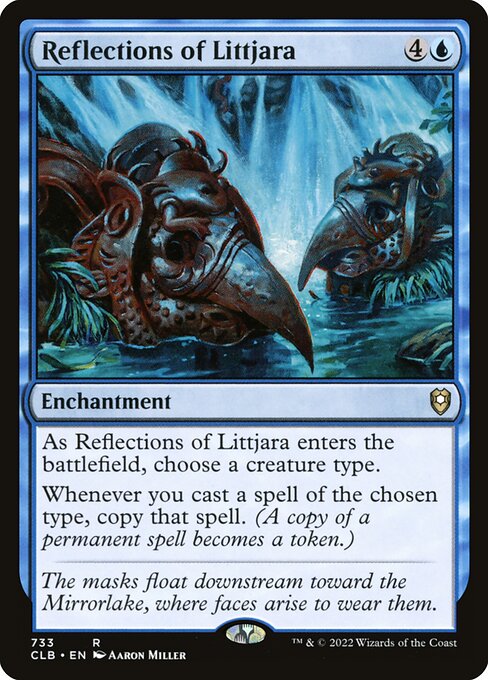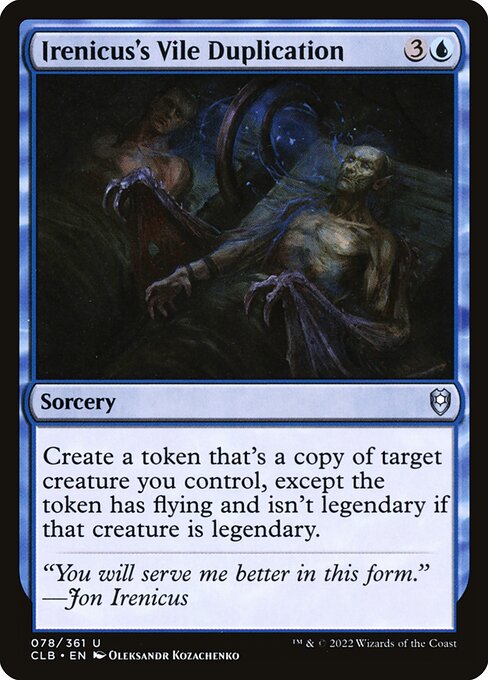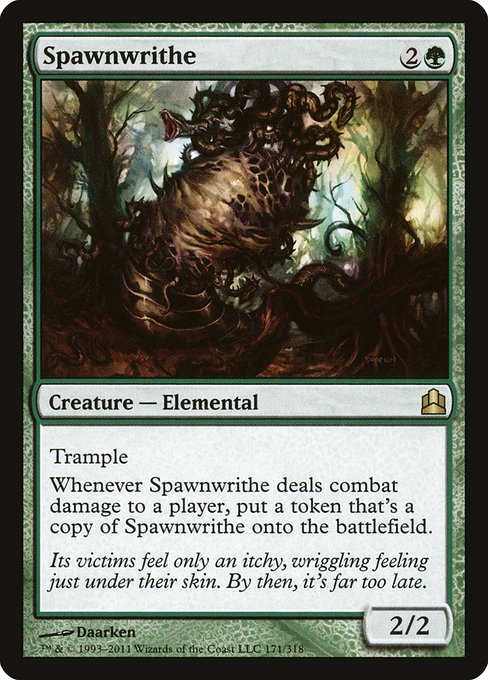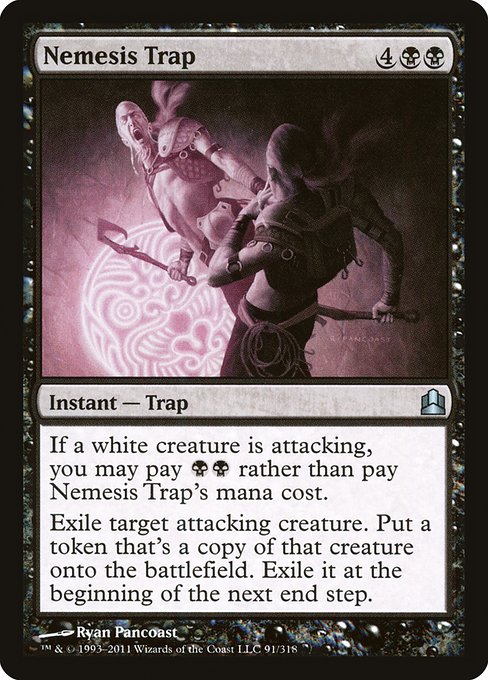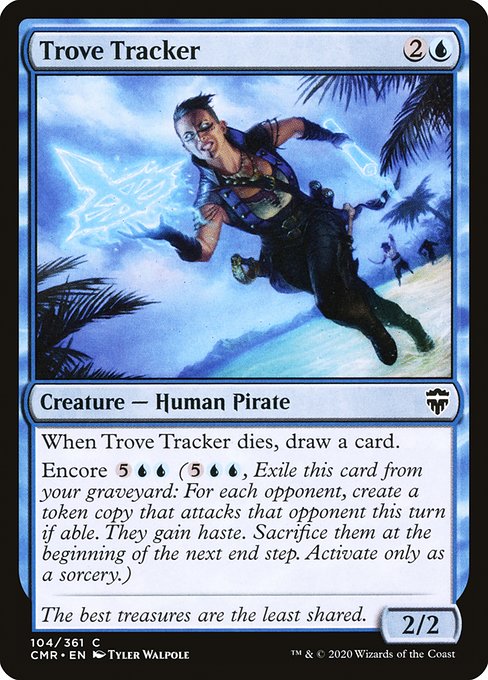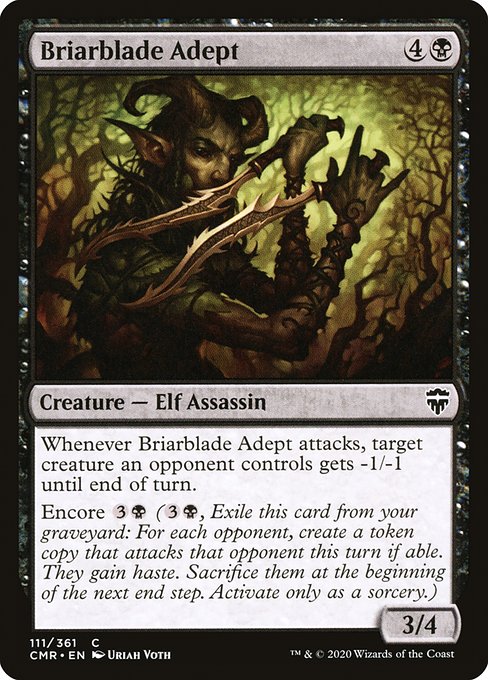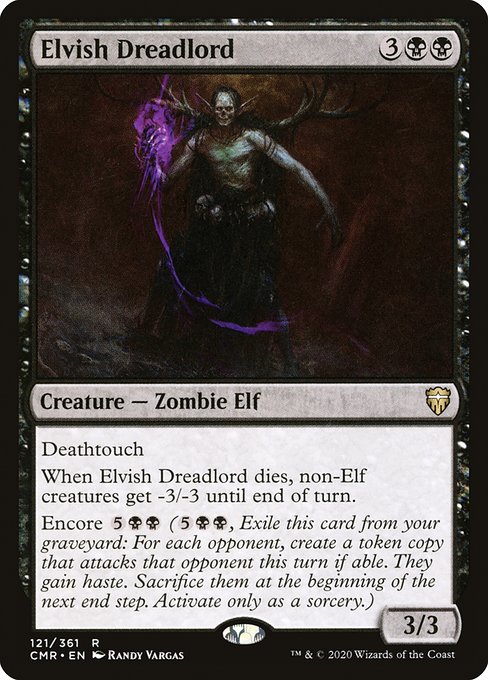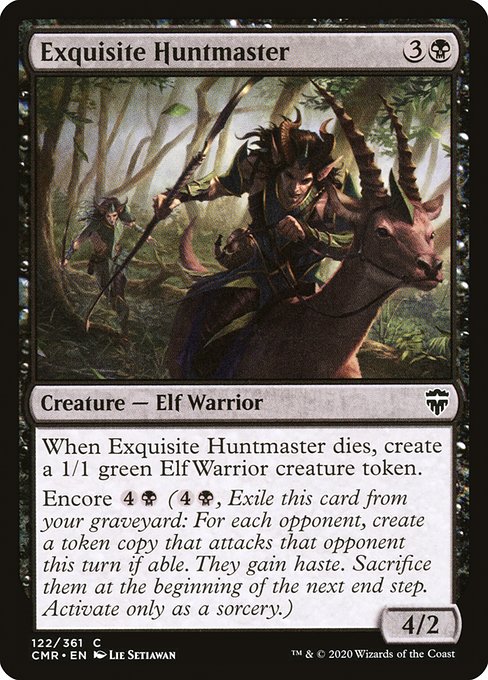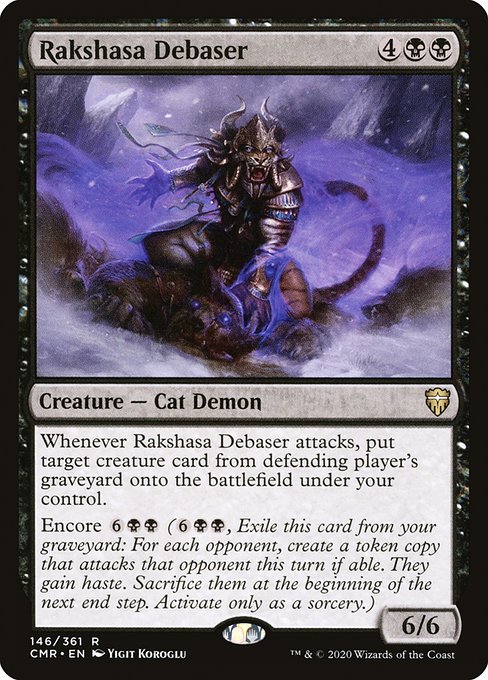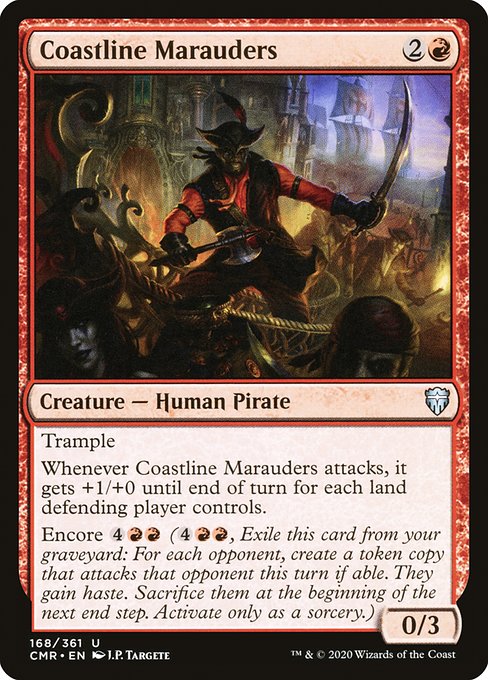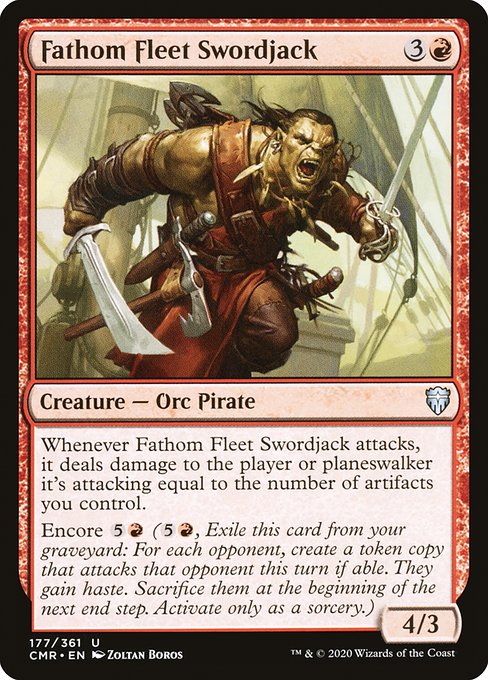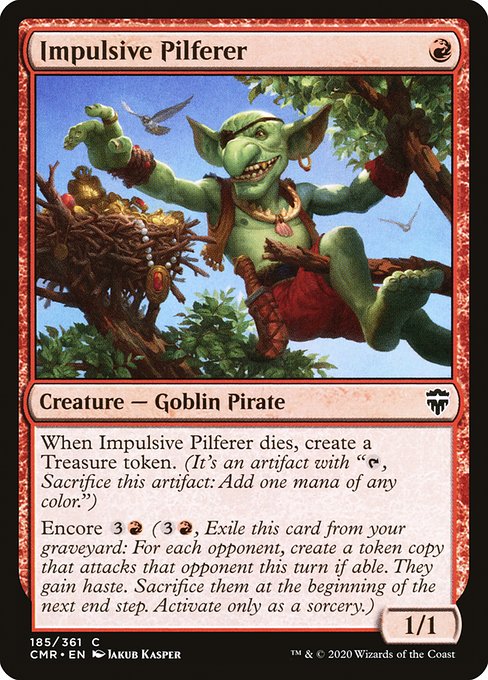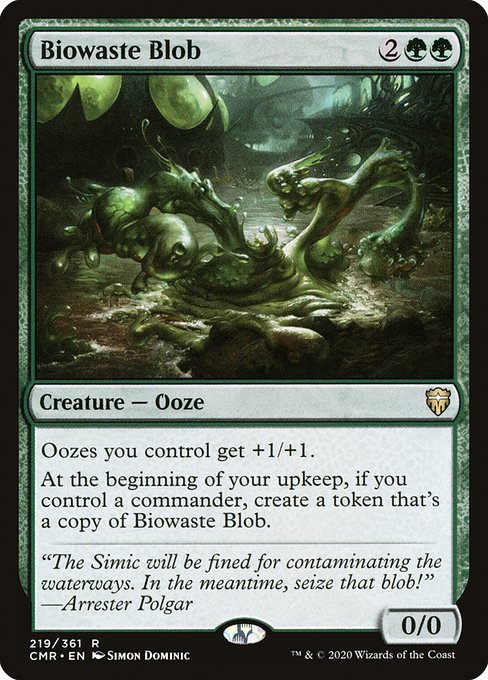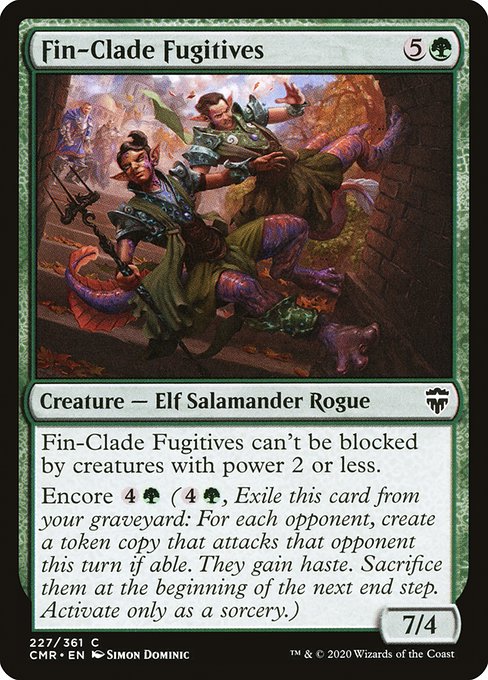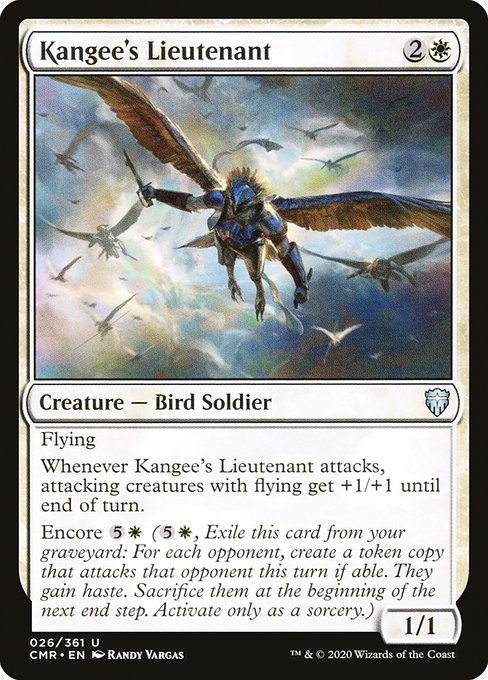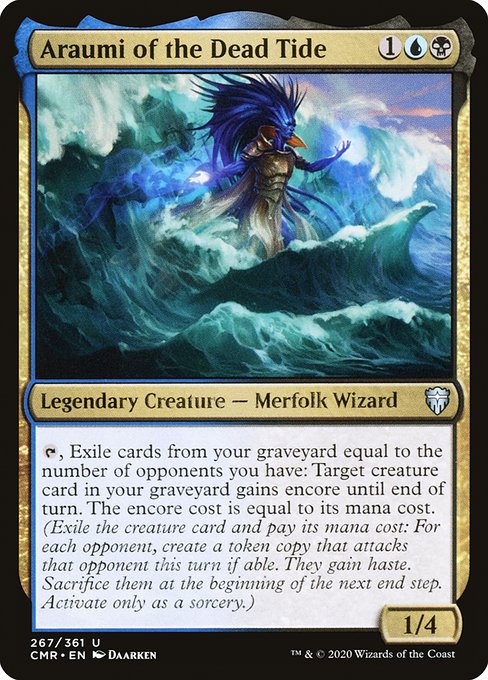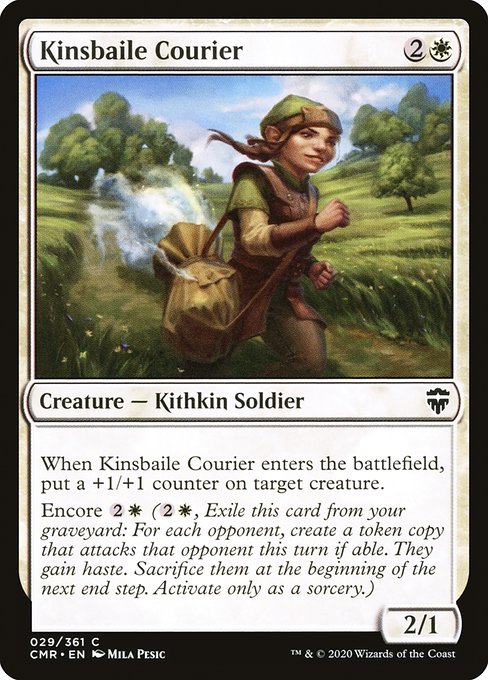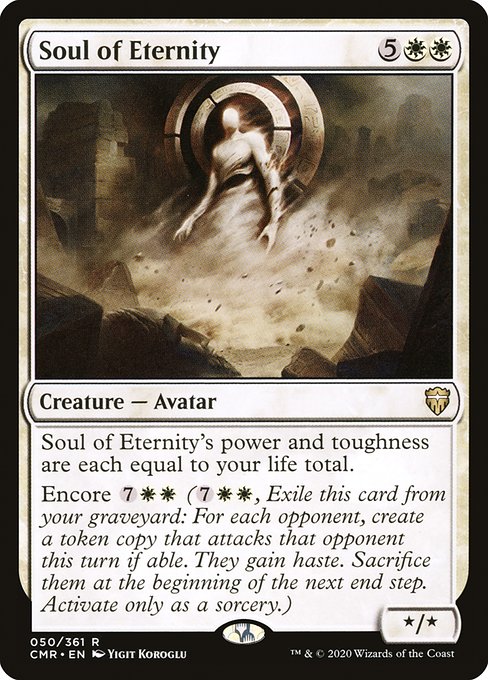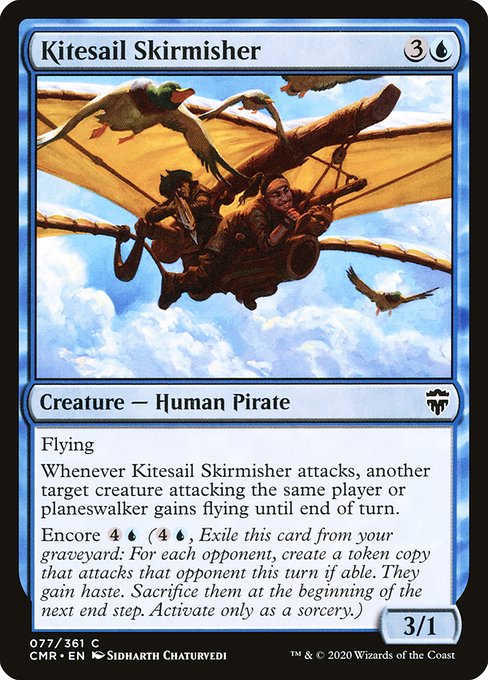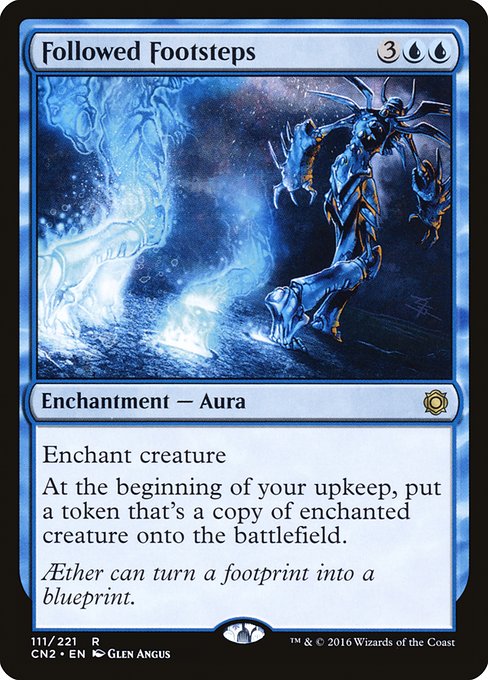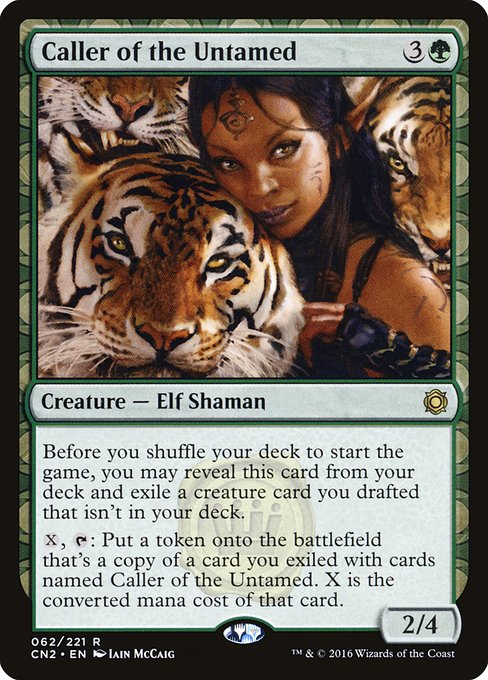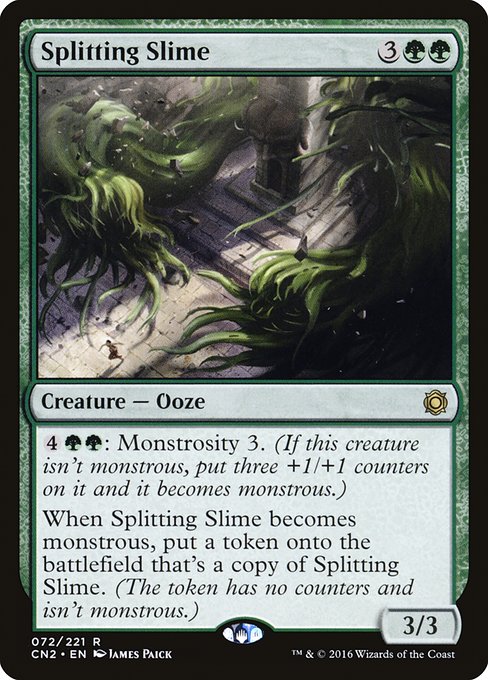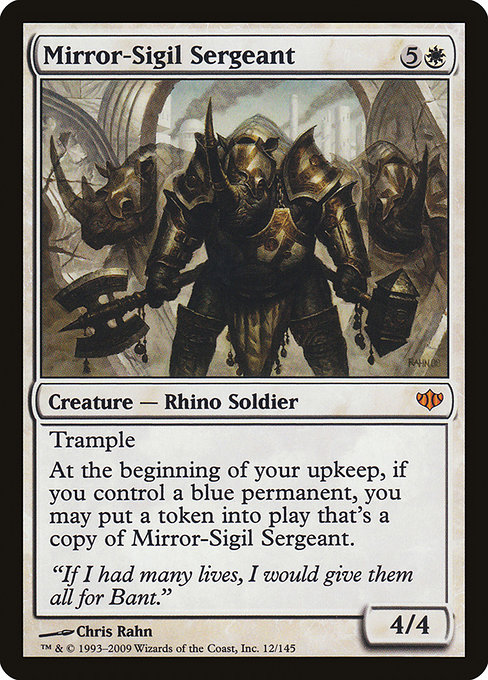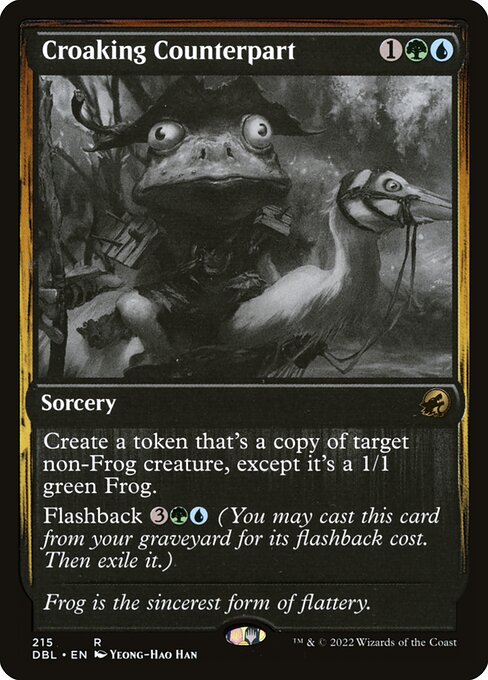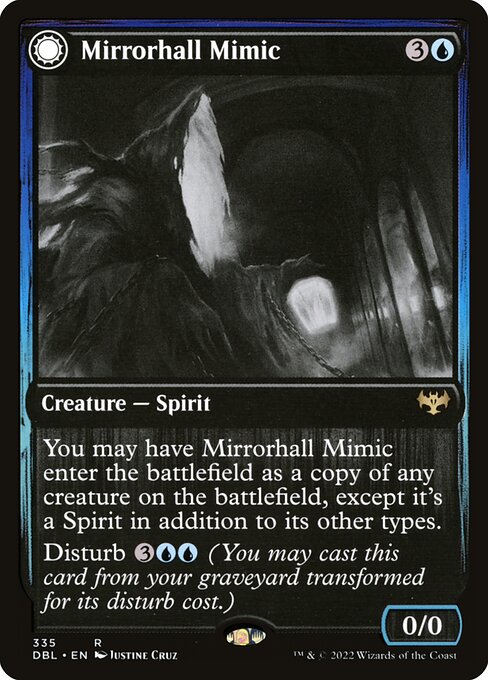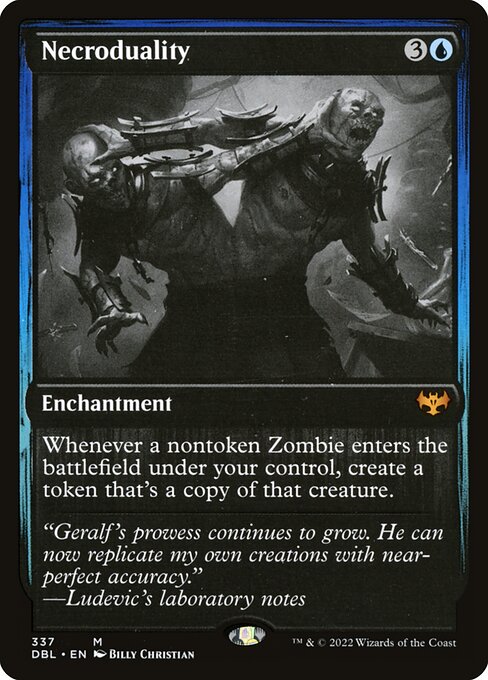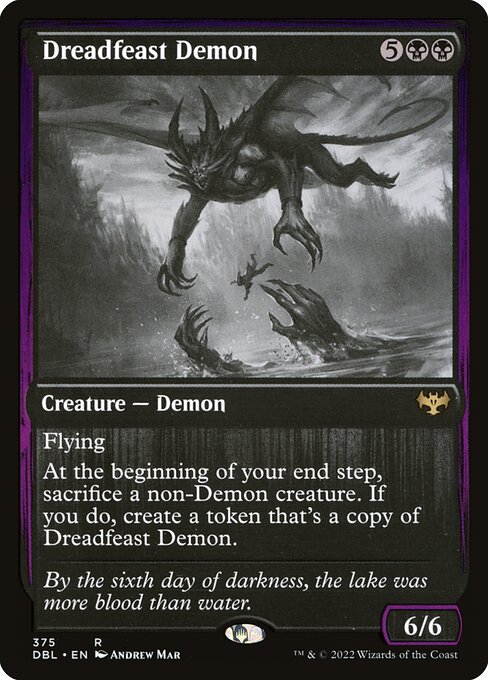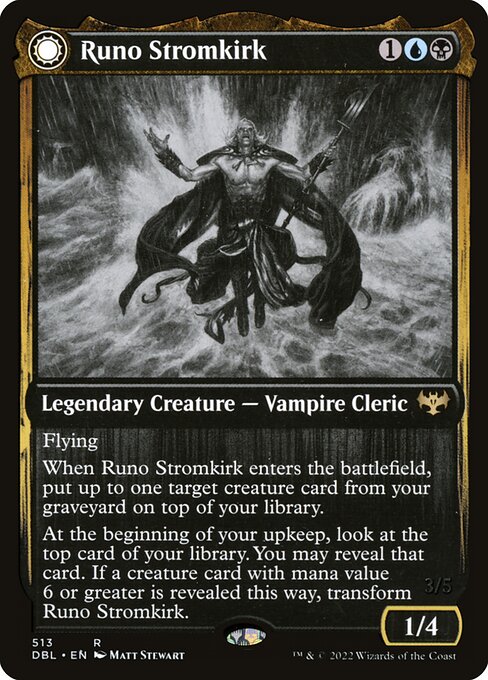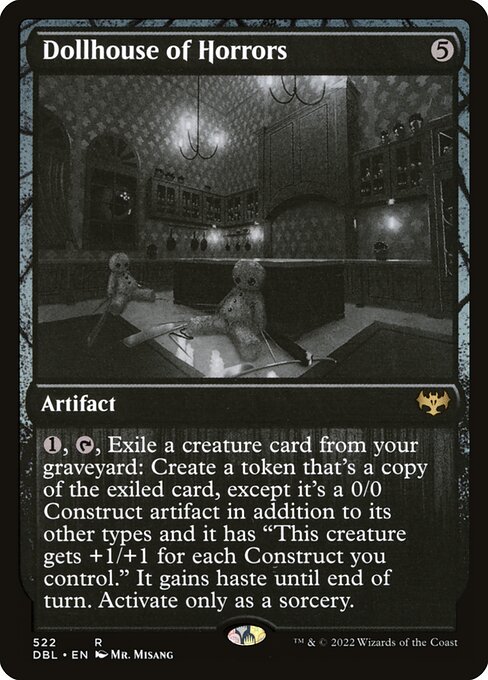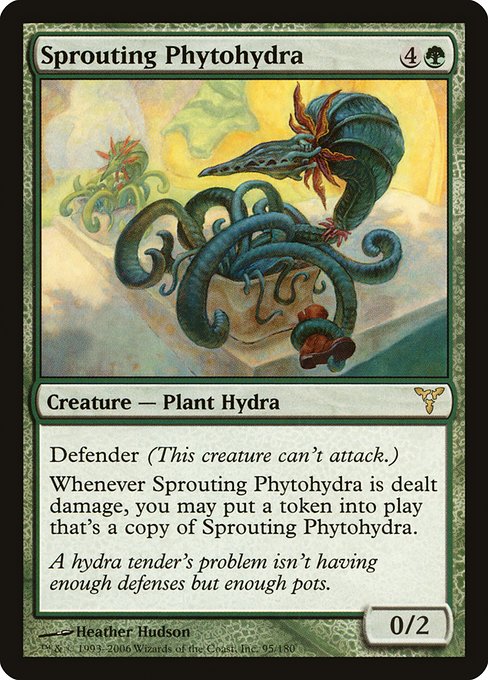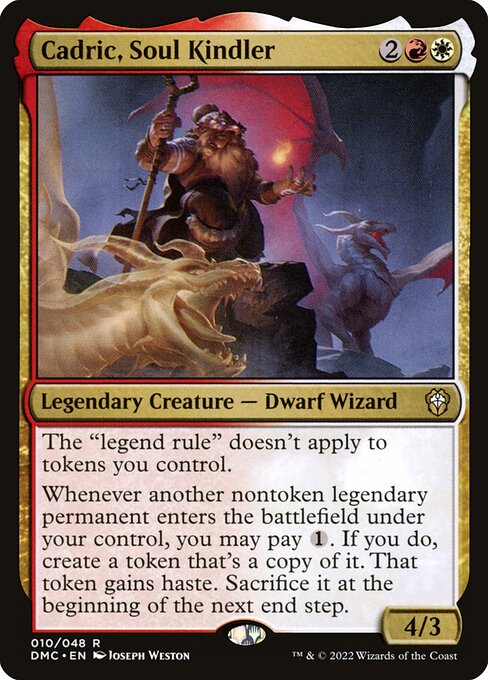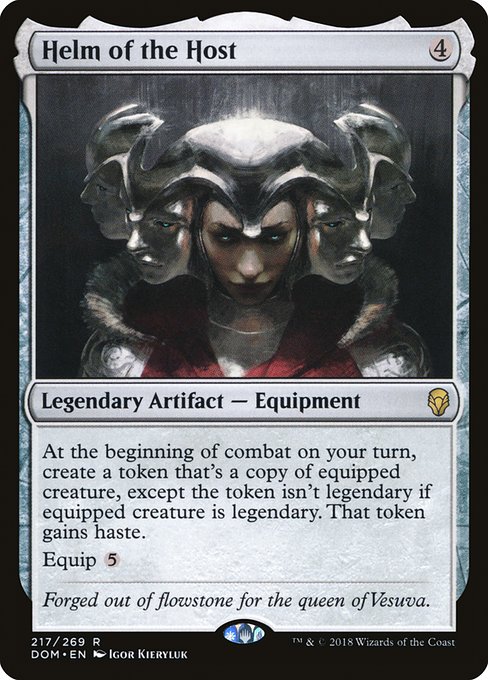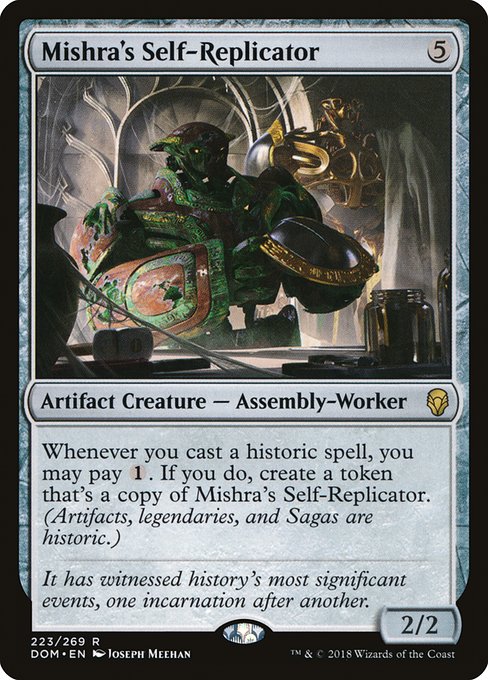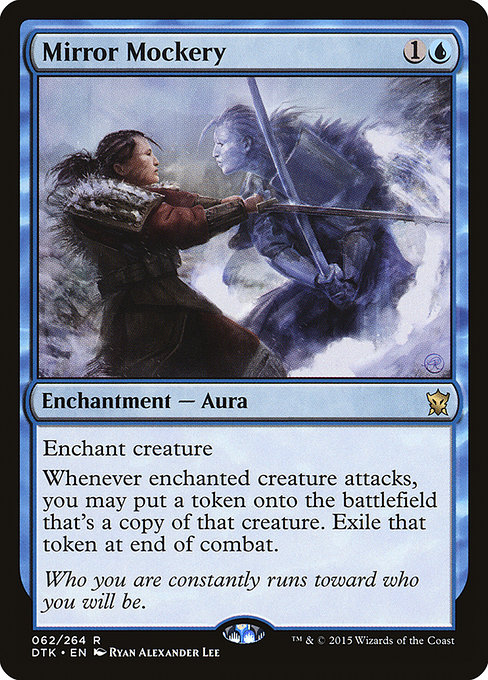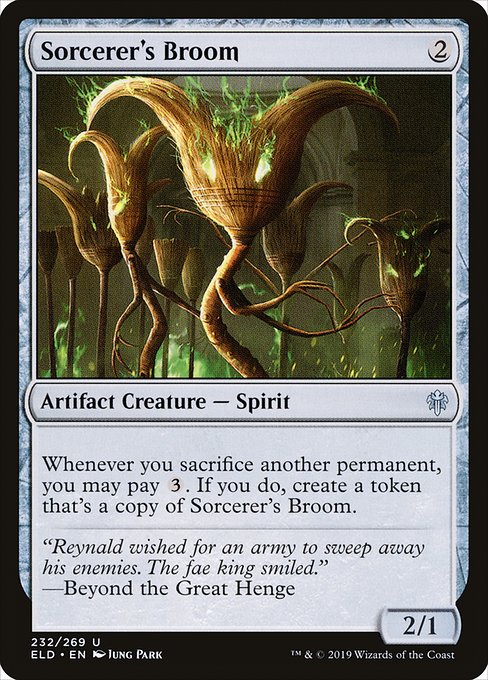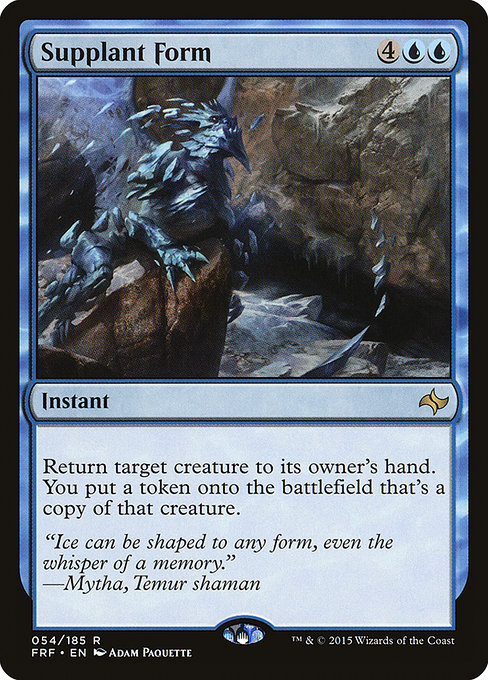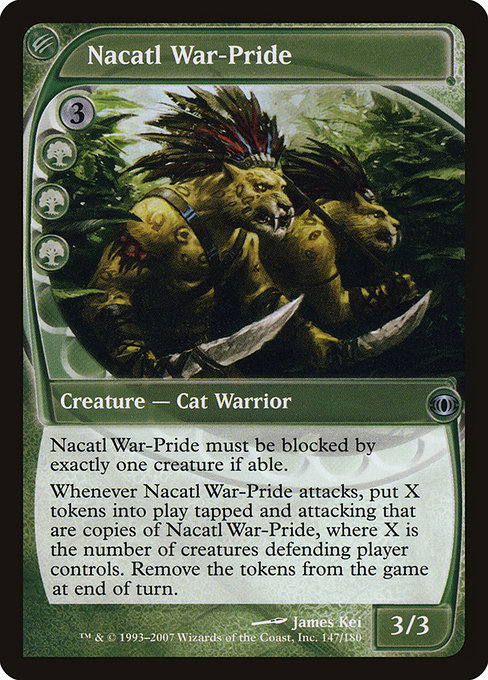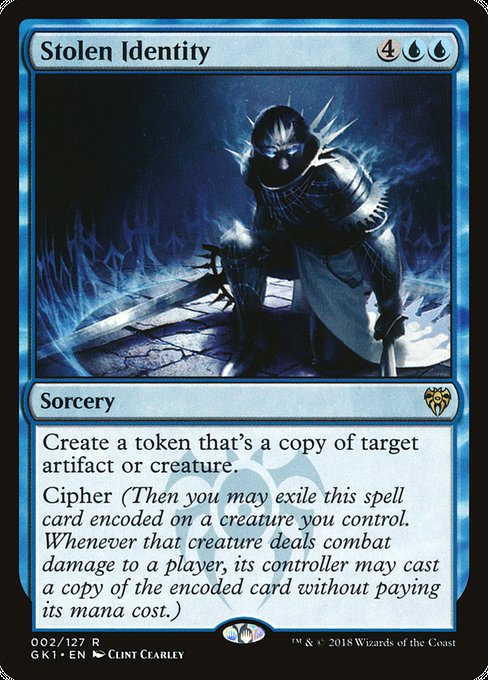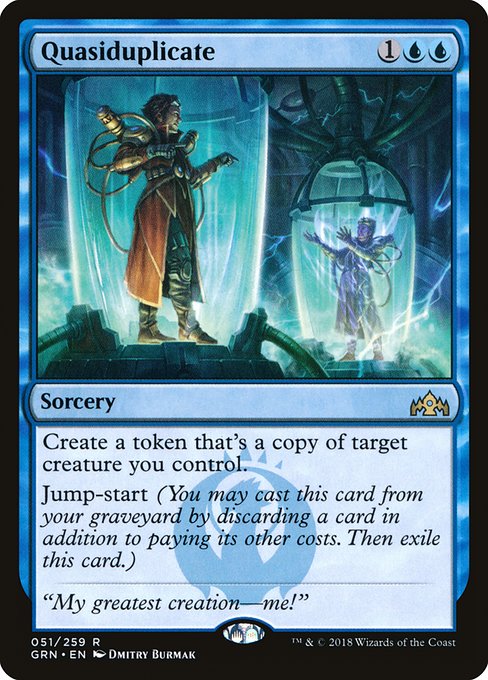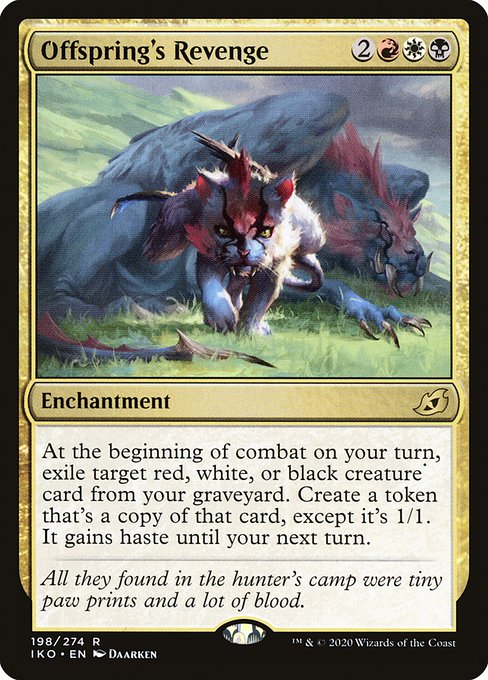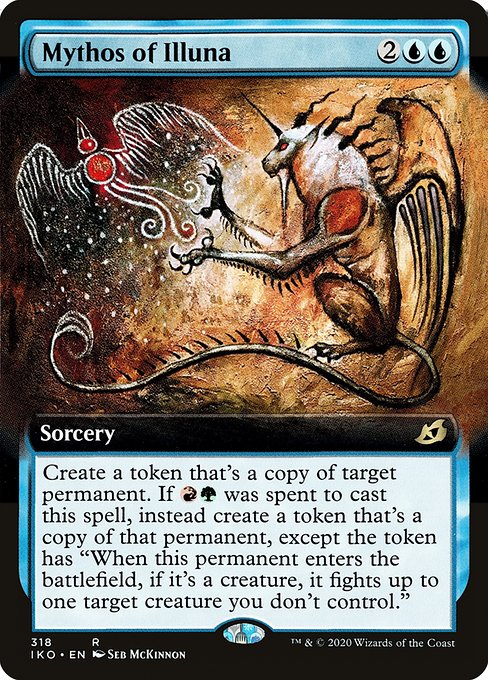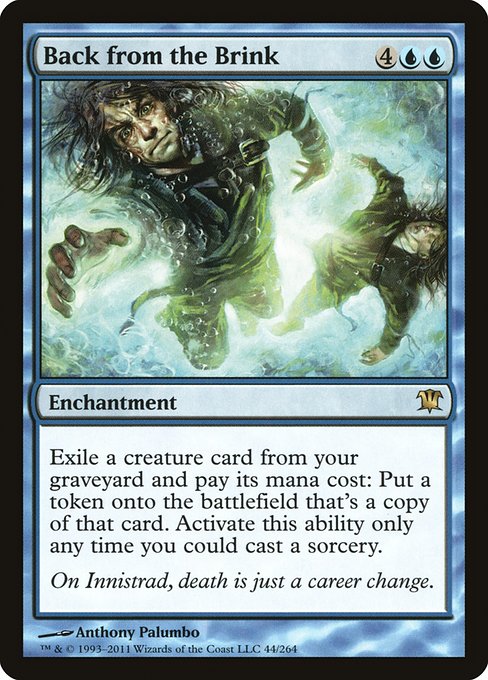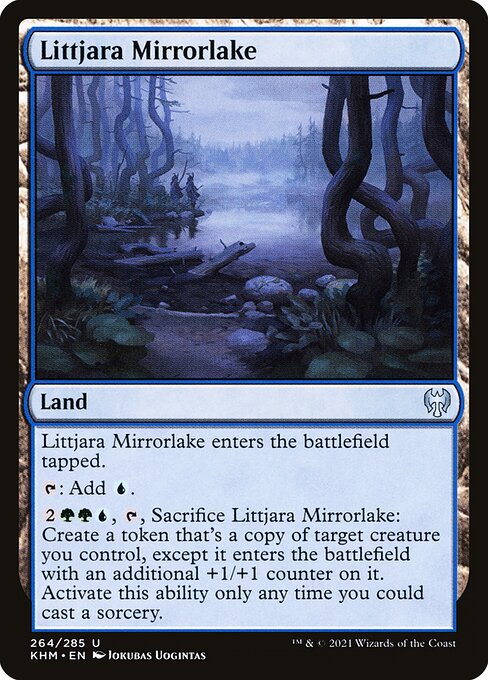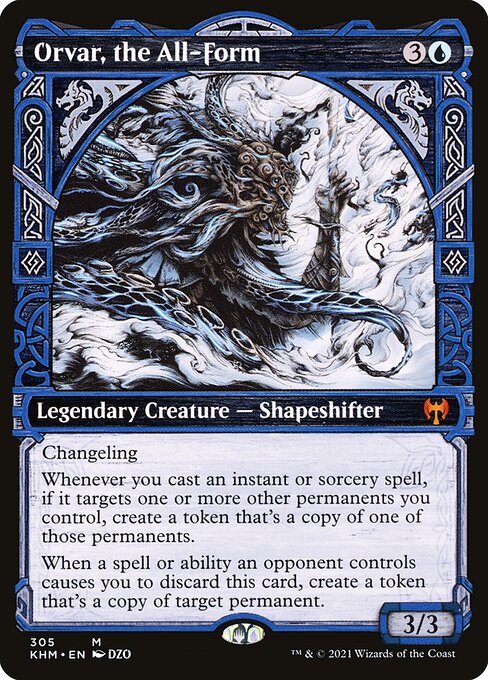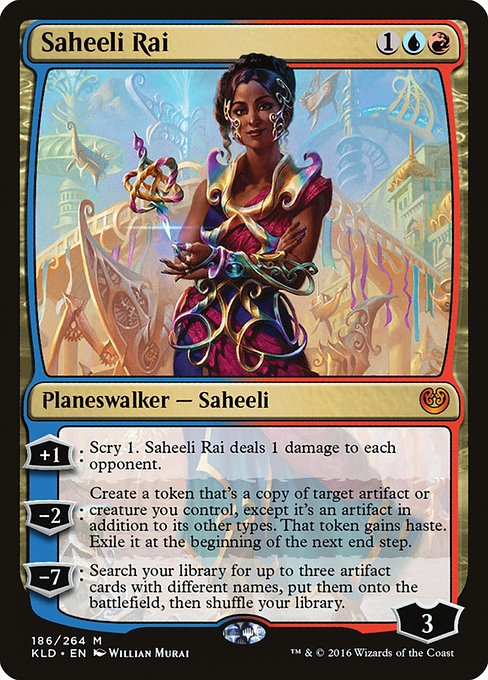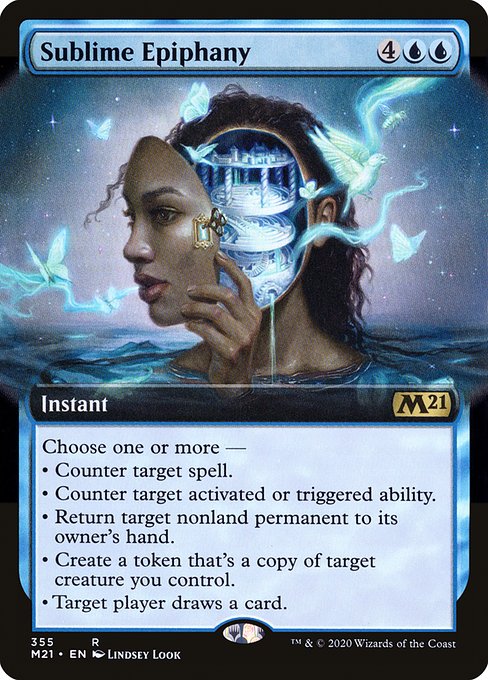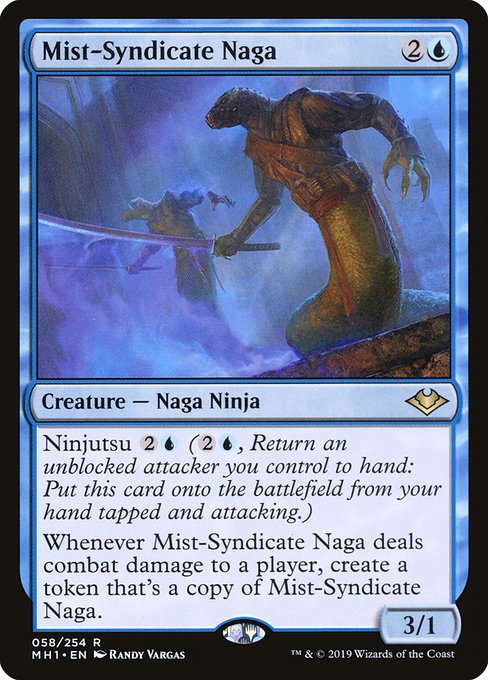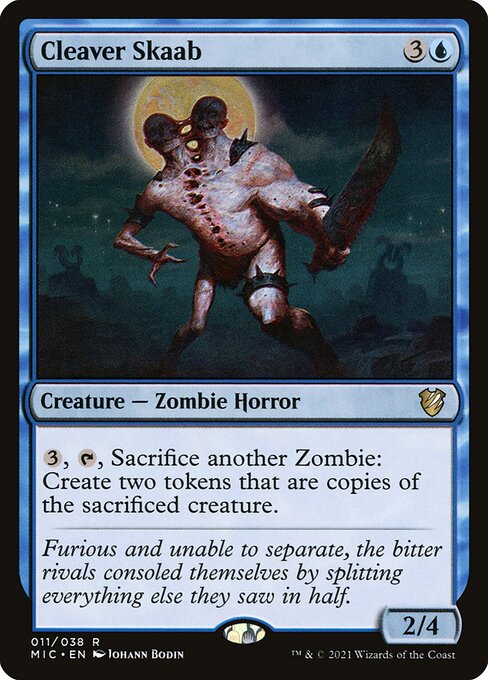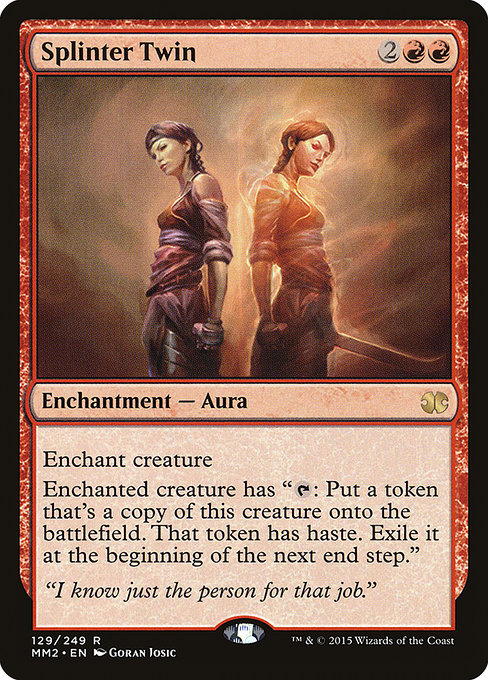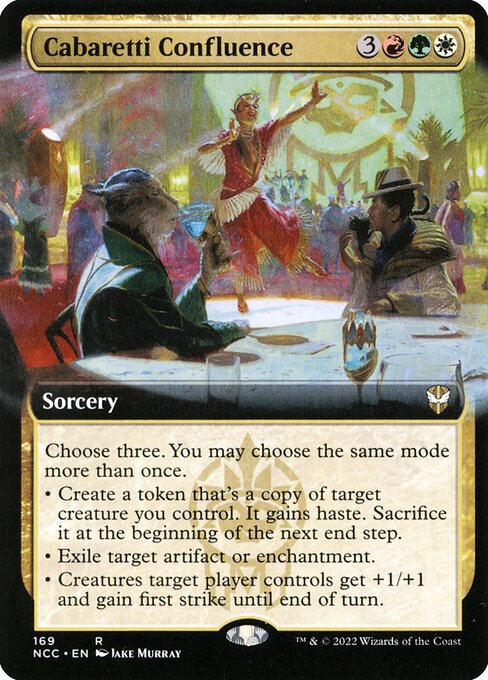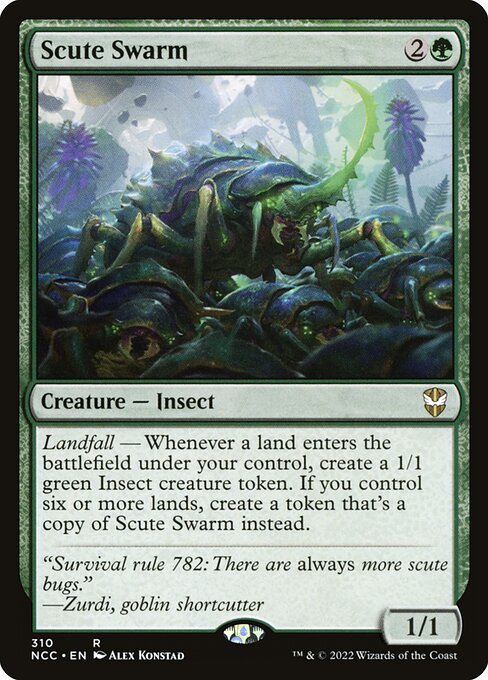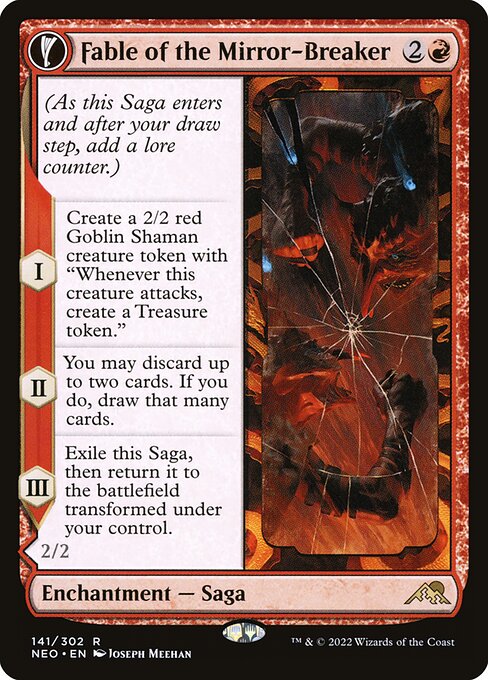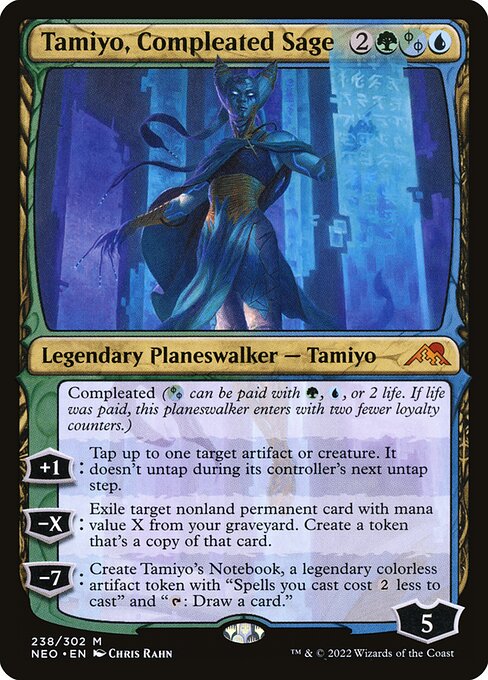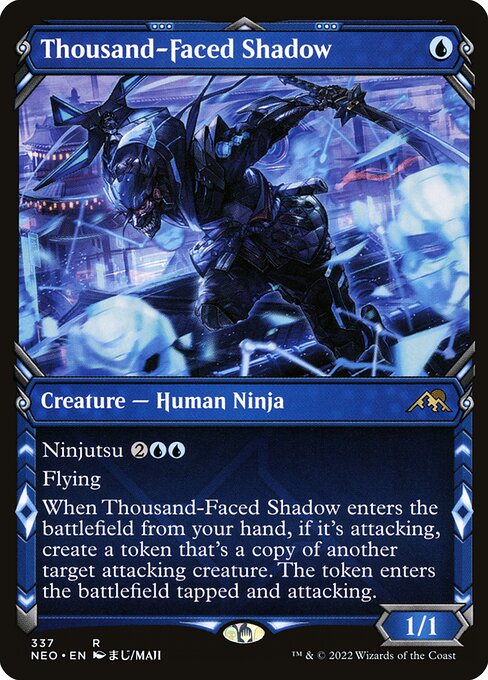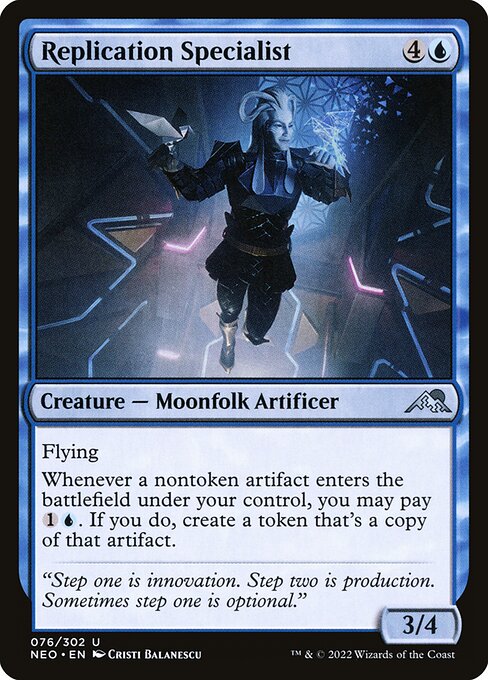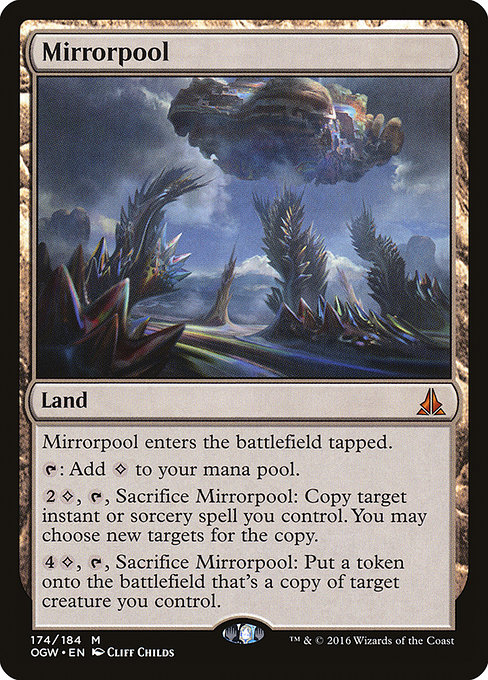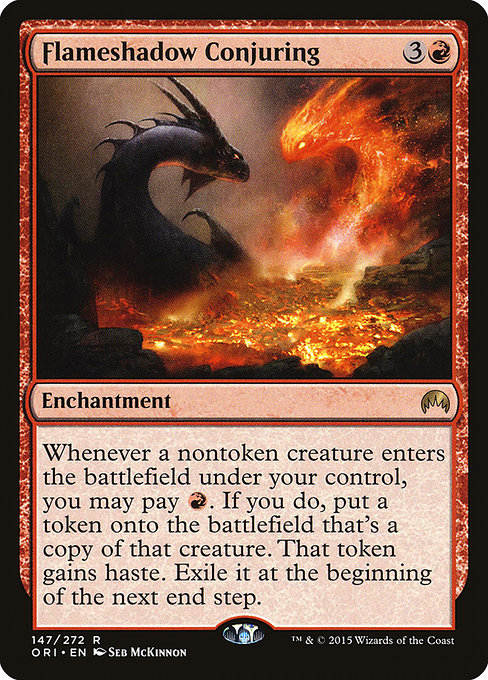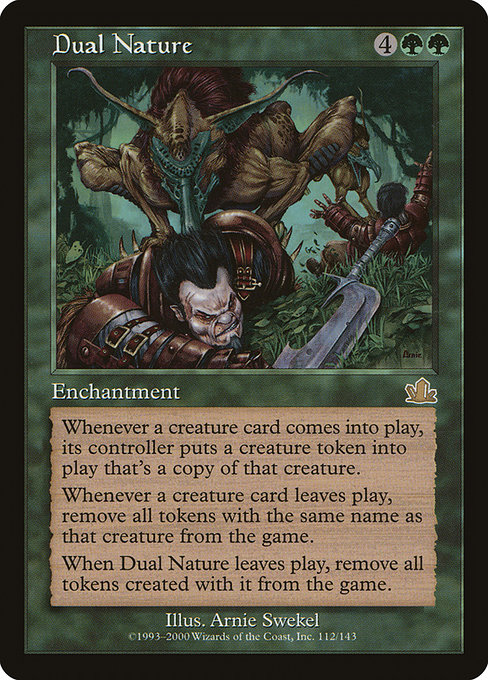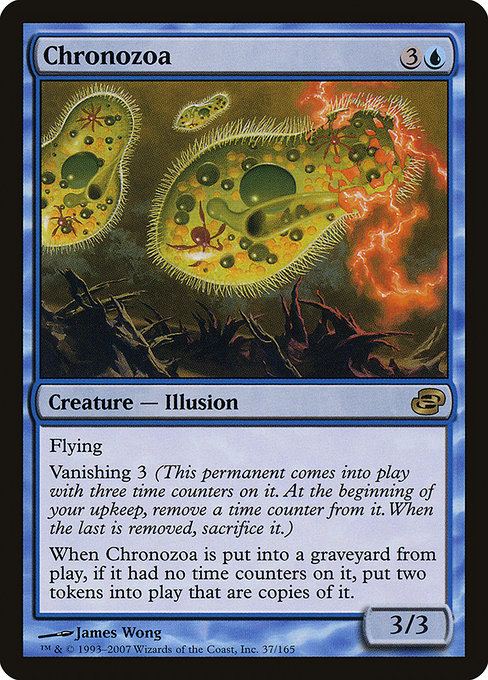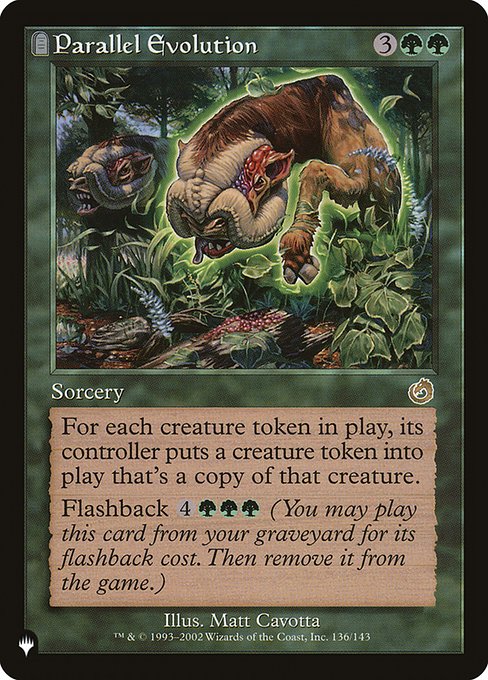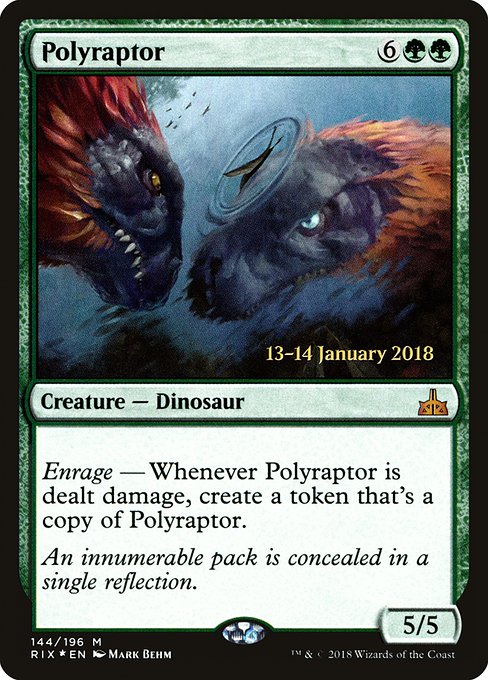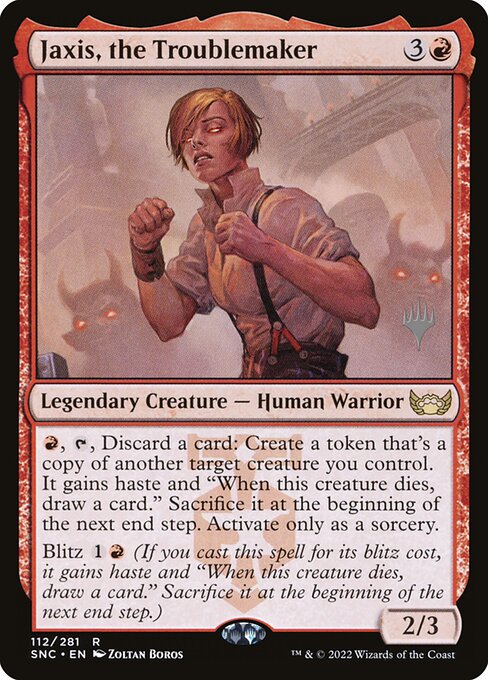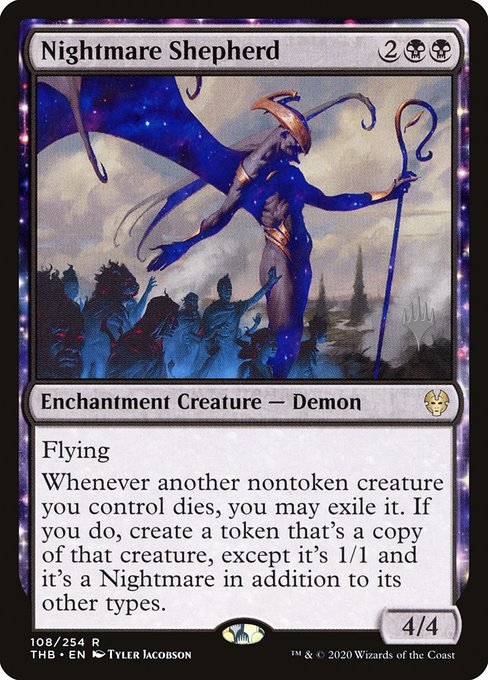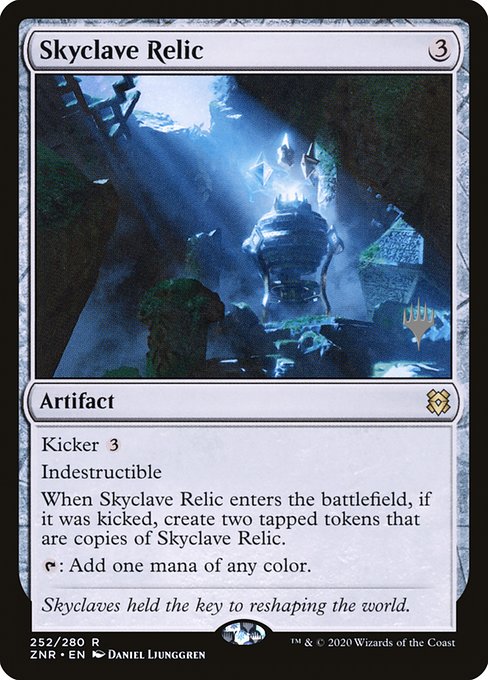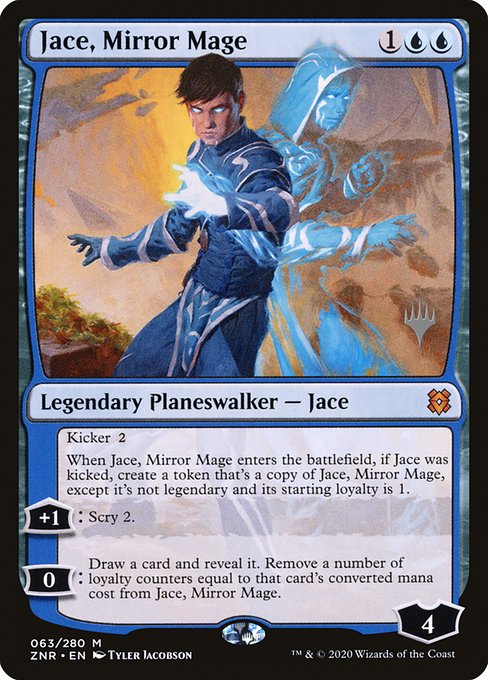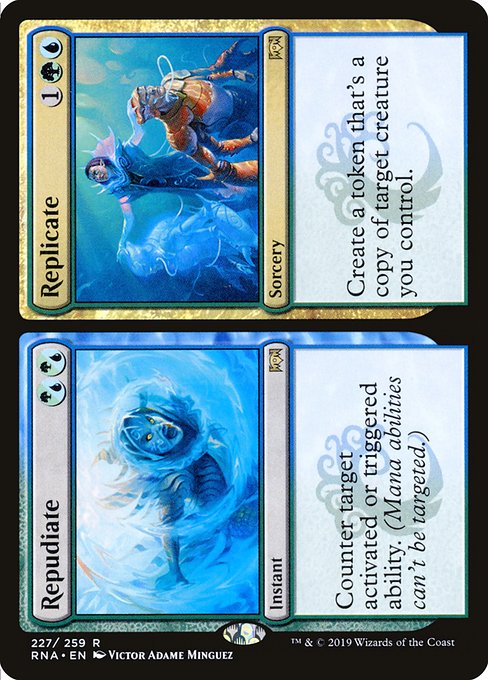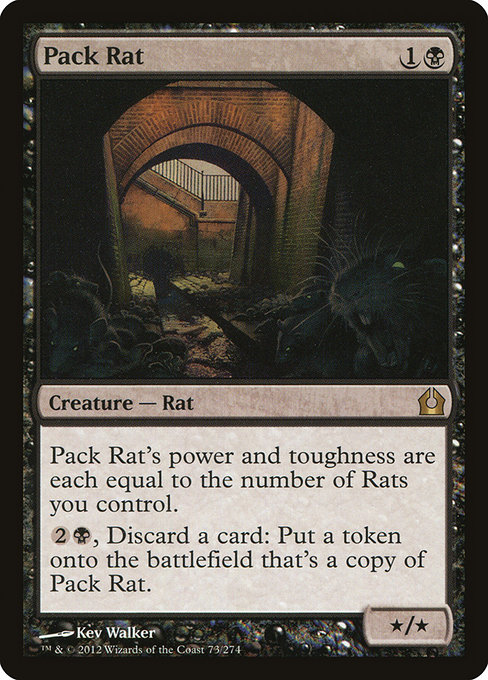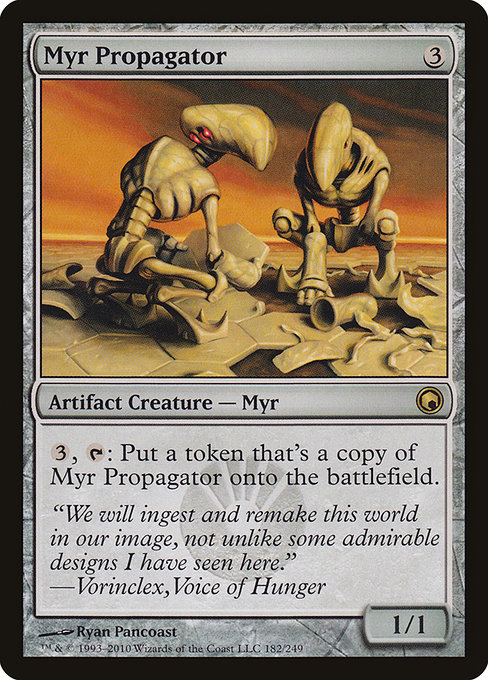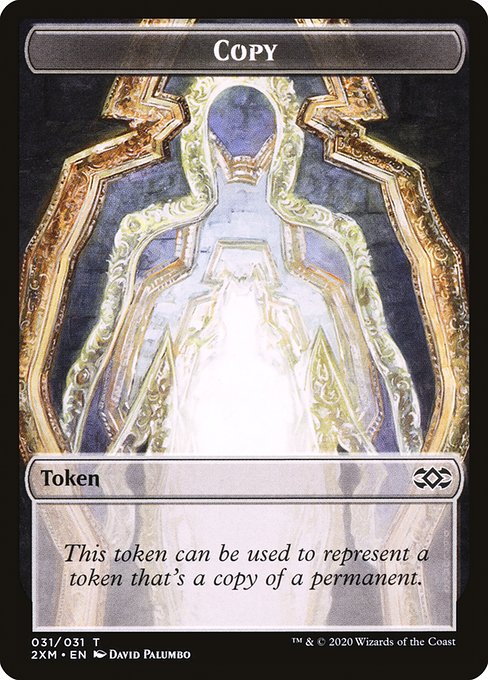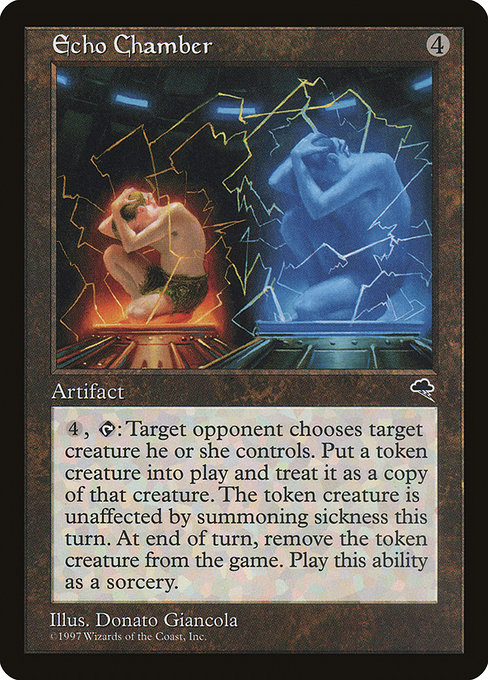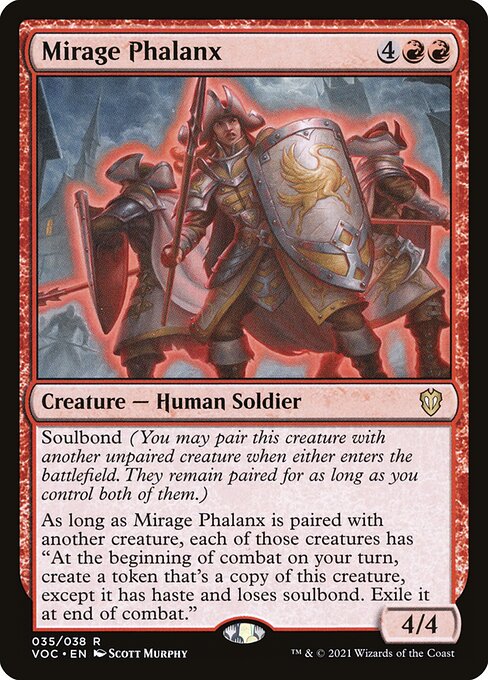フィルボルグのフルート吹き
クリーチャー — 巨人・バード
蠱惑的パフォーマンス ― フィルボルグのフルート吹きが戦場に出たとき、あなたがコントロールしていないクリーチャー1体を対象とする。ターン終了時まで、そのクリーチャーのコントロールを得る。それをアンタップする。ターン終了時まで、それは速攻と無尽を得る。(そのクリーチャーが攻撃するたび、防御プレイヤー以外の対戦相手1人につきそれぞれ、そのクリーチャーのコピーであるトークン1体をタップ状態かつそのプレイヤーかそのプレイヤーがコントロールしているプレインズウォーカー1体を攻撃している状態で生成してもよい。戦闘終了時に、それらのトークンを追放する。)
4/4
standard
future
historic
gladiator
pioneer
explorer
modern
legacy
pauper
vintage
penny
commander
brawl
alchemy
paupercommander
duel
oldschool
premodern
Rulings
The tokens all enter the battlefield at the same time.
Firbolg Flutist's triggered ability can target any creature you don't control, even one that is untapped.
If myriad creates more than one token for any given player (due to an effect such as the one Doubling Season creates), you may choose separately for each token whether it’s attacking the player or a planeswalker they control.
If a token created with the myriad ability phases out before the next end step, the delayed triggered ability will still trigger at the beginning of the next end step after it phases in again. However, if it phases out with that triggered ability on the stack, it won't be exiled, and the delayed triggered ability won't trigger again during future end steps.
Any enters-the-battlefield abilities of the copied creature will trigger when the tokens enter the battlefield. Any “as [this permanent] enters the battlefield” or “[this permanent] enters the battlefield with” abilities of the copied creature will also work.
You choose whether each token is attacking the player or a planeswalker they control as the token is created. If it’s attacking a planeswalker, you choose which one.
The term “defending player” in the myriad rules (or any other ability of an attacking creature) refers to the player the creature with myriad was attacking or the controller of the planeswalker it was attacking at the time the ability resolves. If that creature is no longer attacking, it refers to the player it was last attacking or the controller of the planeswalker it was last attacking.
If the defending player is your only opponent, no tokens are put onto the battlefield.
Gaining control of a creature doesn't cause you to gain control of any Auras or Equipment attached to it.
Each token copies exactly what was printed on the original creature and nothing else. It doesn’t copy whether that creature is tapped or untapped, whether it has any counters on it or Auras and Equipment attached to it, or any non-copy effects that have changed its power, toughness, types, color, and so on.
Although the tokens enter the battlefield attacking, they were never declared as attackers. Abilities that trigger whenever a creature attacks won’t trigger, including the myriad ability of the tokens. If there are any costs to have a creature attack, those costs won’t apply to the tokens.
Firbolg Flutist's triggered ability can target any creature you don't control, even one that is untapped.
If myriad creates more than one token for any given player (due to an effect such as the one Doubling Season creates), you may choose separately for each token whether it’s attacking the player or a planeswalker they control.
If a token created with the myriad ability phases out before the next end step, the delayed triggered ability will still trigger at the beginning of the next end step after it phases in again. However, if it phases out with that triggered ability on the stack, it won't be exiled, and the delayed triggered ability won't trigger again during future end steps.
Any enters-the-battlefield abilities of the copied creature will trigger when the tokens enter the battlefield. Any “as [this permanent] enters the battlefield” or “[this permanent] enters the battlefield with” abilities of the copied creature will also work.
You choose whether each token is attacking the player or a planeswalker they control as the token is created. If it’s attacking a planeswalker, you choose which one.
The term “defending player” in the myriad rules (or any other ability of an attacking creature) refers to the player the creature with myriad was attacking or the controller of the planeswalker it was attacking at the time the ability resolves. If that creature is no longer attacking, it refers to the player it was last attacking or the controller of the planeswalker it was last attacking.
If the defending player is your only opponent, no tokens are put onto the battlefield.
Gaining control of a creature doesn't cause you to gain control of any Auras or Equipment attached to it.
Each token copies exactly what was printed on the original creature and nothing else. It doesn’t copy whether that creature is tapped or untapped, whether it has any counters on it or Auras and Equipment attached to it, or any non-copy effects that have changed its power, toughness, types, color, and so on.
Although the tokens enter the battlefield attacking, they were never declared as attackers. Abilities that trigger whenever a creature attacks won’t trigger, including the myriad ability of the tokens. If there are any costs to have a creature attack, those costs won’t apply to the tokens.
Rulings
The tokens all enter the battlefield at the same time.
Firbolg Flutist's triggered ability can target any creature you don't control, even one that is untapped.
If myriad creates more than one token for any given player (due to an effect such as the one Doubling Season creates), you may choose separately for each token whether it’s attacking the player or a planeswalker they control.
If a token created with the myriad ability phases out before the next end step, the delayed triggered ability will still trigger at the beginning of the next end step after it phases in again. However, if it phases out with that triggered ability on the stack, it won't be exiled, and the delayed triggered ability won't trigger again during future end steps.
Any enters-the-battlefield abilities of the copied creature will trigger when the tokens enter the battlefield. Any “as [this permanent] enters the battlefield” or “[this permanent] enters the battlefield with” abilities of the copied creature will also work.
You choose whether each token is attacking the player or a planeswalker they control as the token is created. If it’s attacking a planeswalker, you choose which one.
The term “defending player” in the myriad rules (or any other ability of an attacking creature) refers to the player the creature with myriad was attacking or the controller of the planeswalker it was attacking at the time the ability resolves. If that creature is no longer attacking, it refers to the player it was last attacking or the controller of the planeswalker it was last attacking.
If the defending player is your only opponent, no tokens are put onto the battlefield.
Gaining control of a creature doesn't cause you to gain control of any Auras or Equipment attached to it.
Each token copies exactly what was printed on the original creature and nothing else. It doesn’t copy whether that creature is tapped or untapped, whether it has any counters on it or Auras and Equipment attached to it, or any non-copy effects that have changed its power, toughness, types, color, and so on.
Although the tokens enter the battlefield attacking, they were never declared as attackers. Abilities that trigger whenever a creature attacks won’t trigger, including the myriad ability of the tokens. If there are any costs to have a creature attack, those costs won’t apply to the tokens.
Firbolg Flutist's triggered ability can target any creature you don't control, even one that is untapped.
If myriad creates more than one token for any given player (due to an effect such as the one Doubling Season creates), you may choose separately for each token whether it’s attacking the player or a planeswalker they control.
If a token created with the myriad ability phases out before the next end step, the delayed triggered ability will still trigger at the beginning of the next end step after it phases in again. However, if it phases out with that triggered ability on the stack, it won't be exiled, and the delayed triggered ability won't trigger again during future end steps.
Any enters-the-battlefield abilities of the copied creature will trigger when the tokens enter the battlefield. Any “as [this permanent] enters the battlefield” or “[this permanent] enters the battlefield with” abilities of the copied creature will also work.
You choose whether each token is attacking the player or a planeswalker they control as the token is created. If it’s attacking a planeswalker, you choose which one.
The term “defending player” in the myriad rules (or any other ability of an attacking creature) refers to the player the creature with myriad was attacking or the controller of the planeswalker it was attacking at the time the ability resolves. If that creature is no longer attacking, it refers to the player it was last attacking or the controller of the planeswalker it was last attacking.
If the defending player is your only opponent, no tokens are put onto the battlefield.
Gaining control of a creature doesn't cause you to gain control of any Auras or Equipment attached to it.
Each token copies exactly what was printed on the original creature and nothing else. It doesn’t copy whether that creature is tapped or untapped, whether it has any counters on it or Auras and Equipment attached to it, or any non-copy effects that have changed its power, toughness, types, color, and so on.
Although the tokens enter the battlefield attacking, they were never declared as attackers. Abilities that trigger whenever a creature attacks won’t trigger, including the myriad ability of the tokens. If there are any costs to have a creature attack, those costs won’t apply to the tokens.
Your collection? Your decks?
Want to manage your collection and/or create decks?
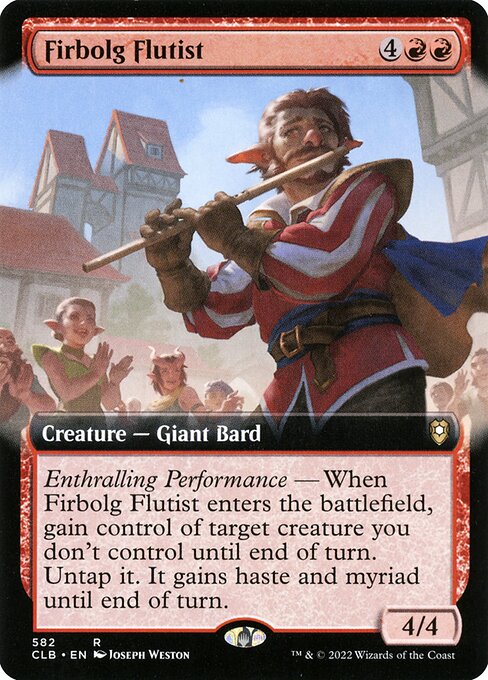

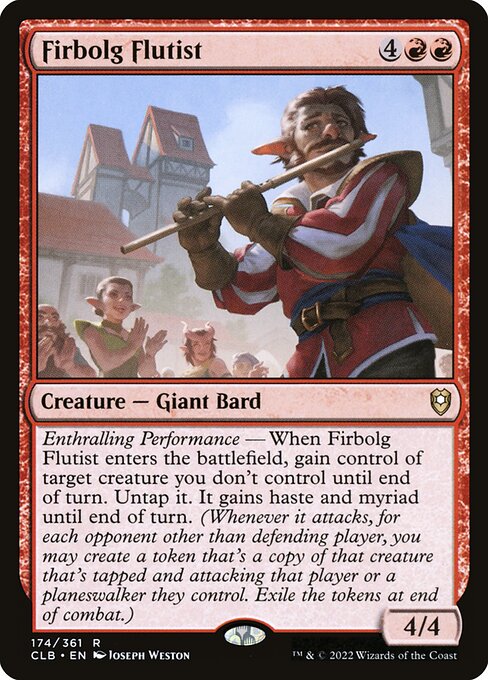
 0
0
 0.20€
0.20€
